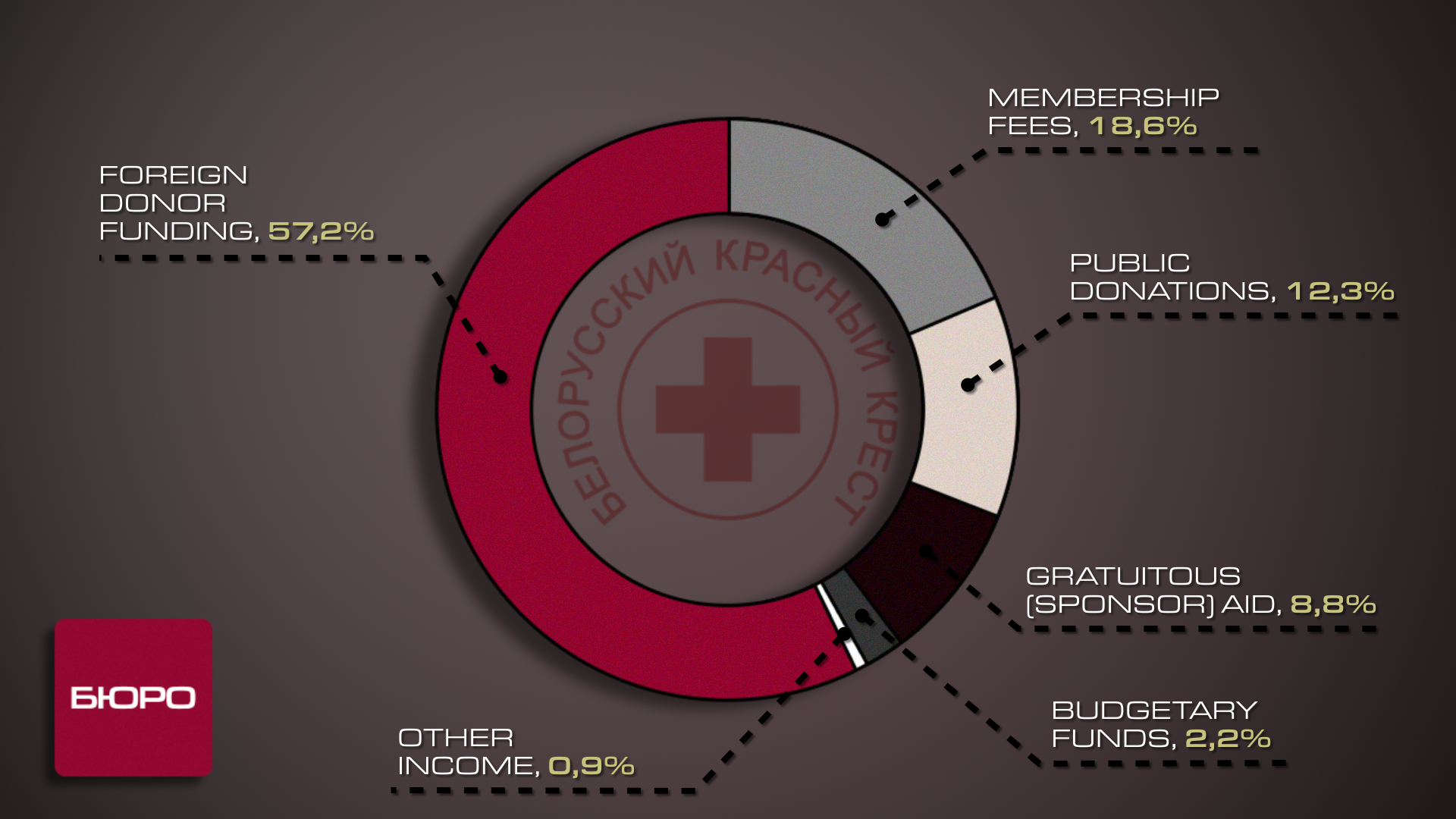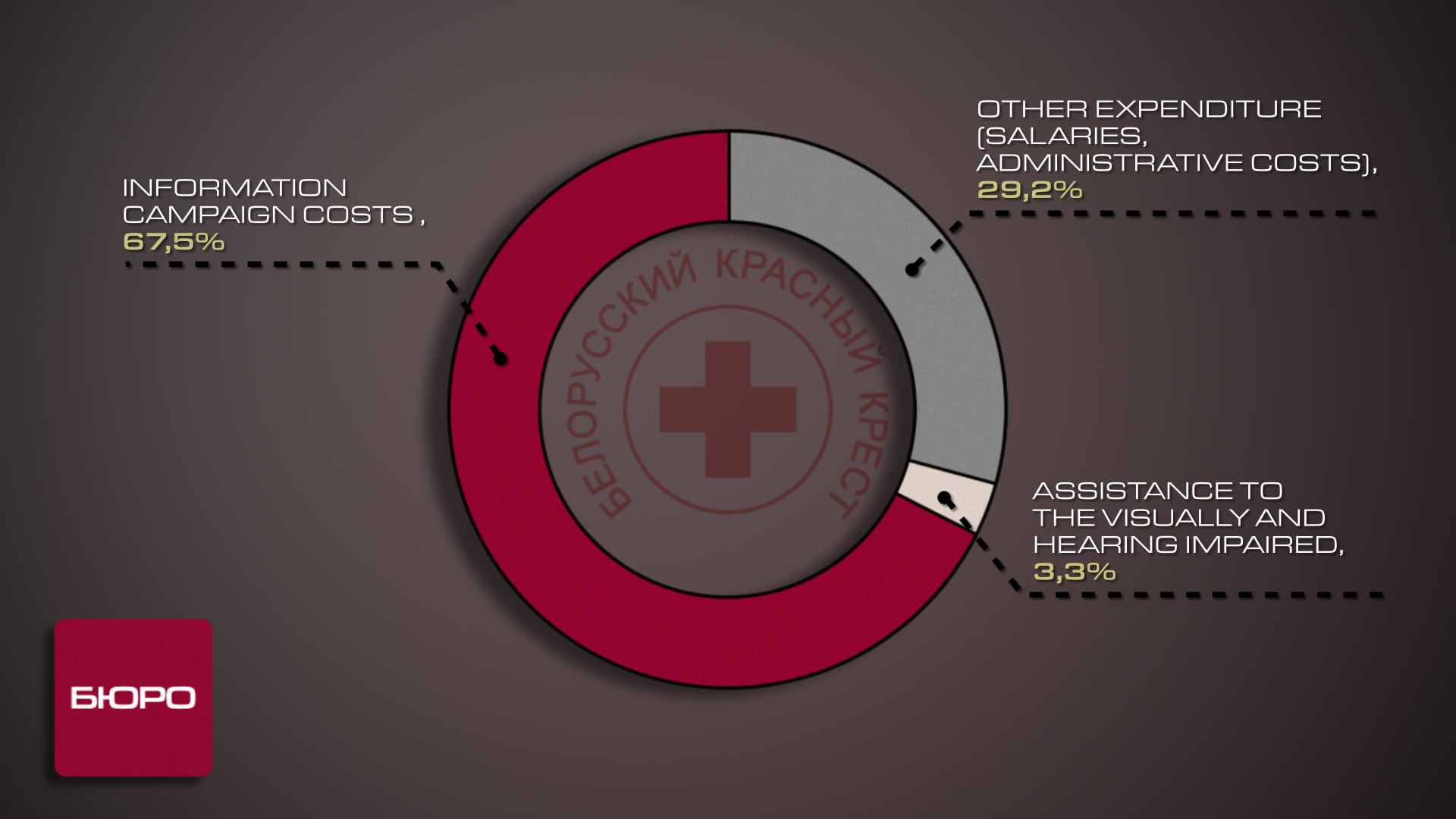The Dark Sides of the Belarusian Red Cross Society
The Belarusian Red Cross Society has been involved in several scandals over the years of its existence in independent Belarus. Volundatory membership fees, participation in election commissions, and the forced transportation of children from the occupied territories of Ukraine are just a few examples.
Today, we will describe how the organisation operated under the reign of Dzmitry Shautsou. Whose expense covers the cost of international business trips for him and his "attendants"? How is foreign money distributed within international projects? The new Buro investigation covers all of this and more.
We would like to thank CyberPartisans, BELPOL and Belarusian Medical Solidarity Foundation for their support in producing this publication.
TURKISH DELIGHT
It is 4 June 2022. A Belavia plane arrives in Istanbul from Minsk on a hot summer's day. The Belarusian Red Cross Society employees are on board.
A stroll through the city's market streets envelops the participants in the pungent aroma of oriental spices, colourful mosques, bright blue skies and vibrant green palm trees.
A few days later, Volha Isakova, head of international cooperation at the BRC, posted photos of the Turkish bazaar on her Instagram. She also shared views of the Golden Horn Bay from a restaurant near the Galata Bridge with her followers.

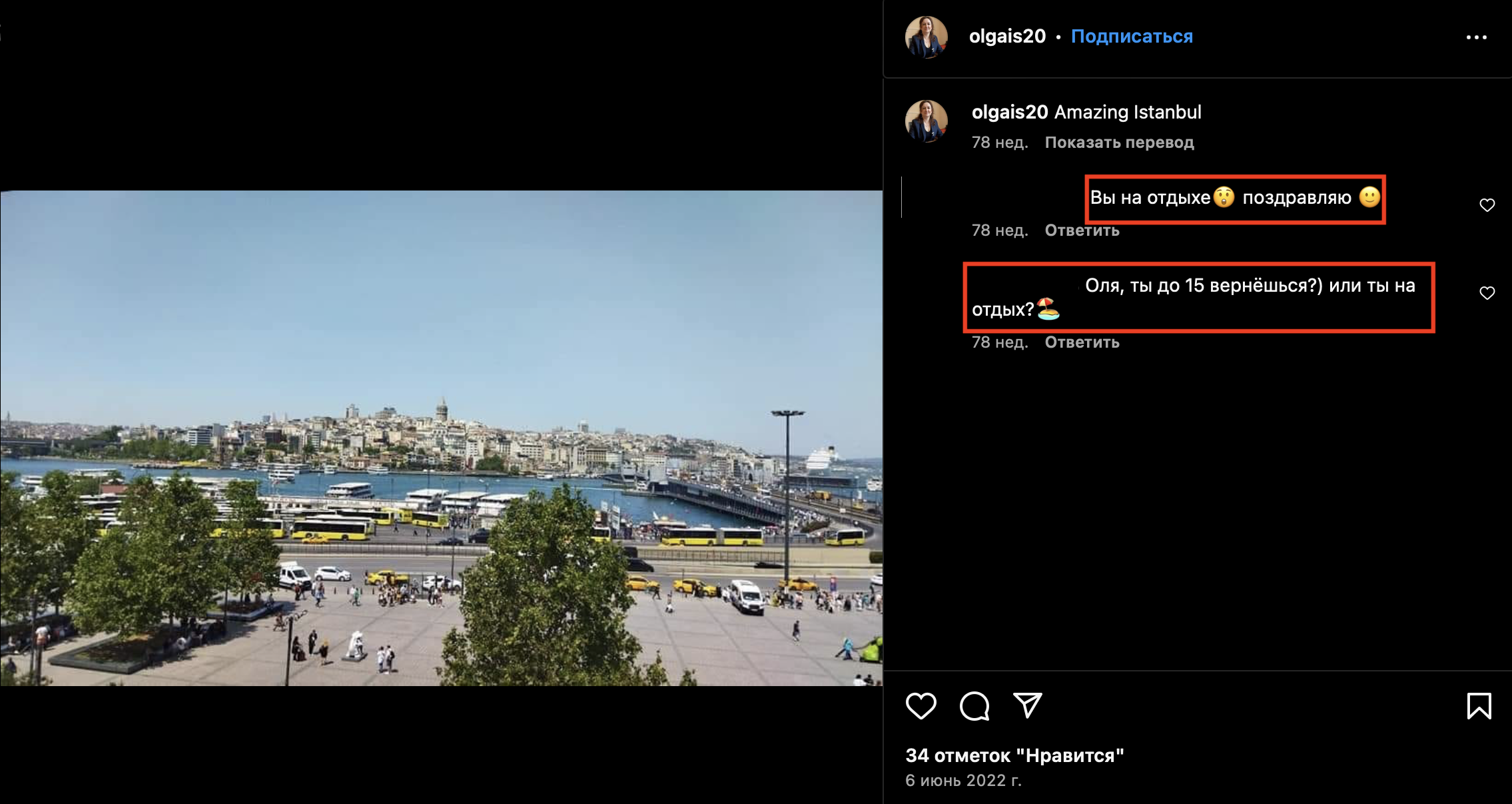
Screenshots from the Instagram page of BRC staff member Volha Isakova
"Volha, will you be back before the 15th? Or are you staying on holiday?" a follower worries.
"Are you on vacation? Congratulations!" rejoices another.
And there are reasons to rejoice. But first things first.
On 9 May, the Turkish Red Crescent invited BRC President Dzmitry Charednichenka to Istanbul for an exchange of experiences. The dates proposed were June 6-10.
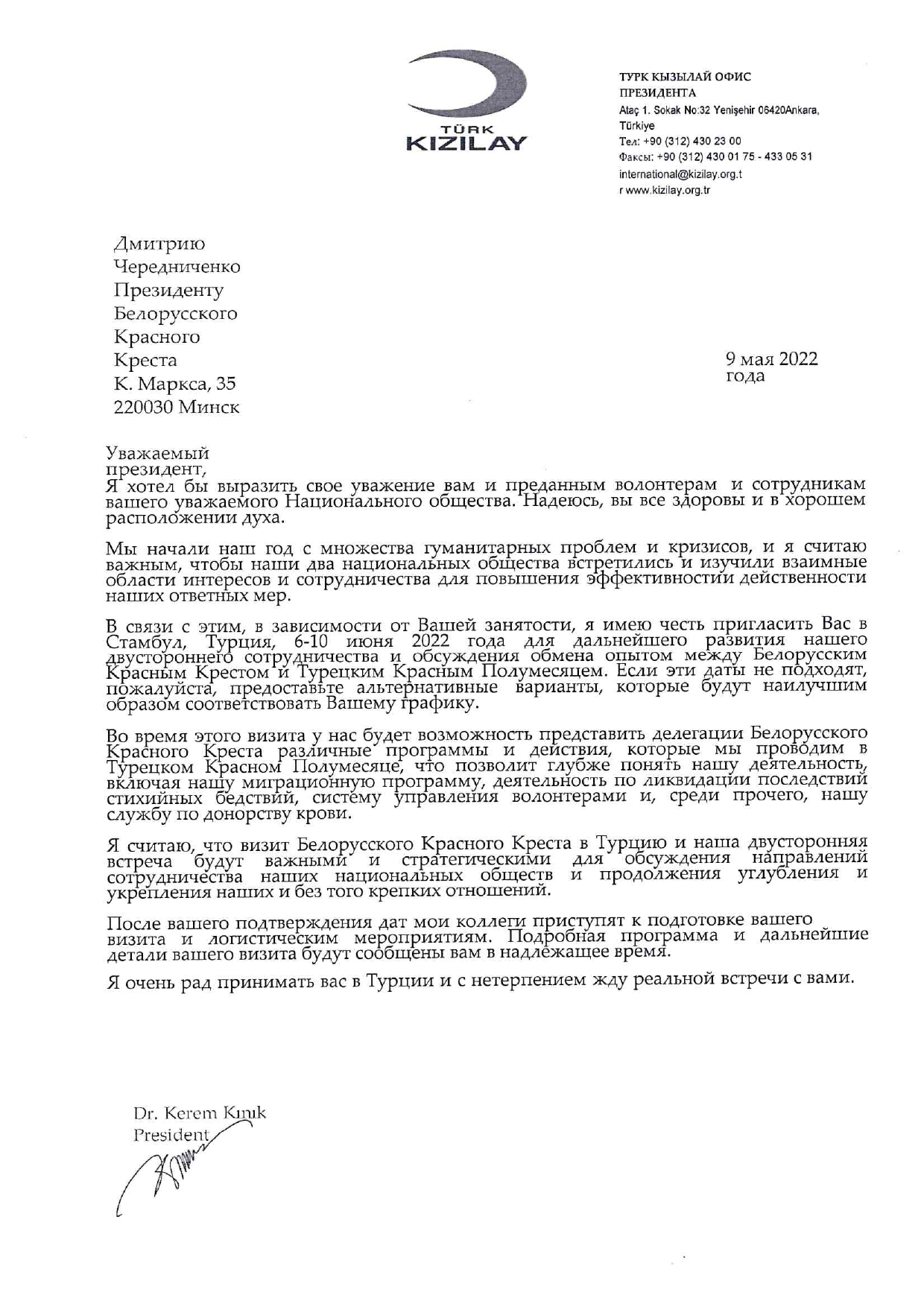
However, the president did not go himself, instead inviting Secretary-General Dzmitry Shautsou.
The latter, in his turn, invited nine more people. And a week and a half later, he bought nine tickets from Belavia for a total of more than $4,300. Dzmitry Shautsou, his two deputies Ina Lemiasheuskaya and Ramania Zoryna, department heads from the secretariat Volha Isakova and Ihar Trusau, as well as economist Siarhei Shahun, were scheduled to travel to Istanbul instead of Charednichenka. Regional executives Ala Smaliak, Natallia Taukachova, Mikalai Kuzmitski, and Halina Zhalanava joined the BRC's top officials.
They collected a total of 10 people. Quite an impressive delegation. Shautsou requested a complimentary VIP lounge from Minsk National Airport on the day of departure. What was his reasoning? Ala Smaliak, an “important” member of the Council of the Republic and concurrently chairman of the Homel BRC branch, was part of the delegation. Allegedly, they also had fragile souvenirs for their Turkish colleagues.
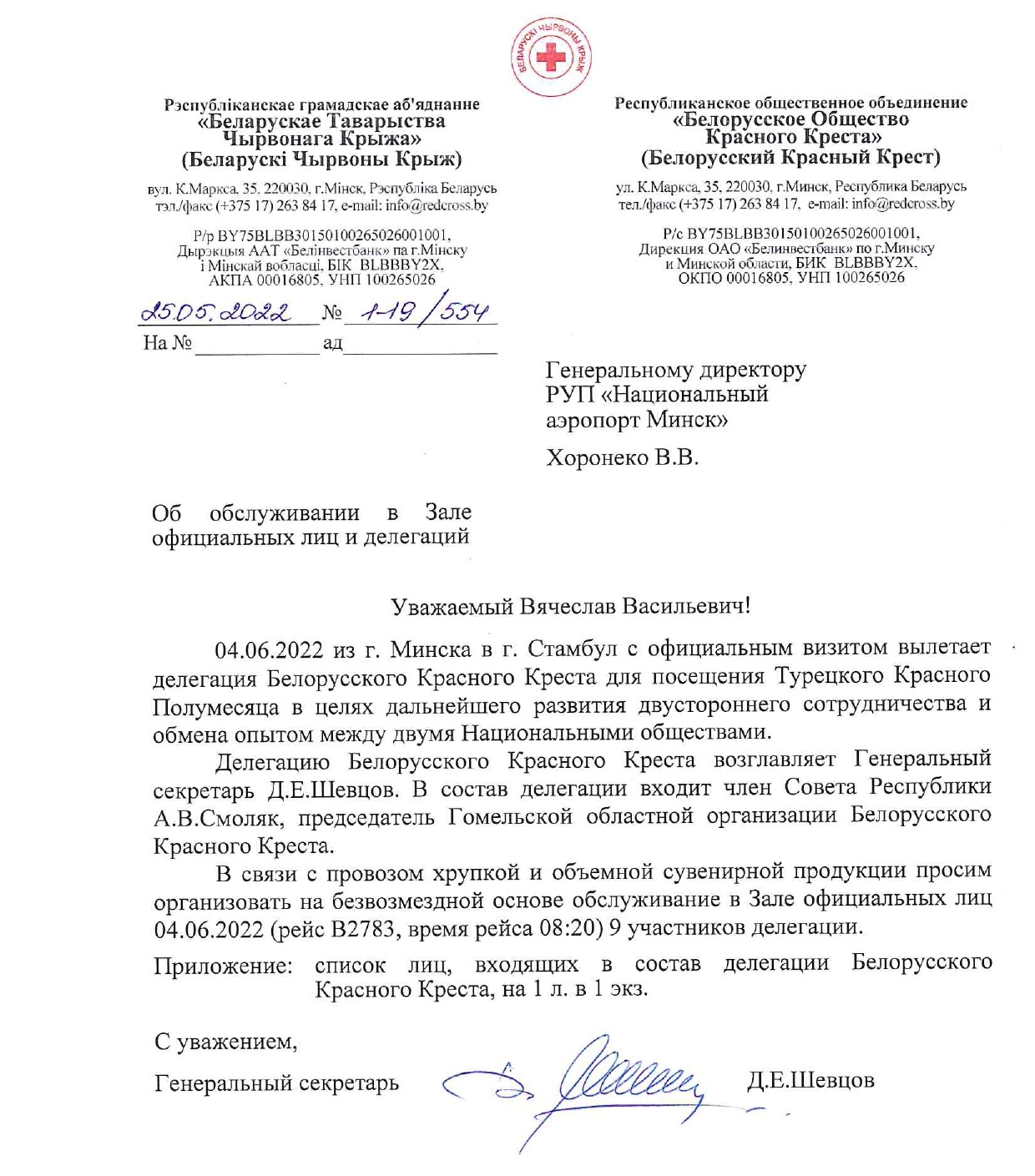
Sources unrelated to each other have reported that BRC employees extended their business trip beyond the required duration and came in a larger group. Our interlocutors specifically mentioned Dzmitry Shautsou and Natallia Taukachova.
"Shautsou brought there random, irrelevant people. Everyone was outraged. Well, by outraged I mean people were wisper-gossipping. Because [Shautsou] took his lover, too. Why is he bringing her everywhere? I understand their desire for some time together, but not at the expense of membership fees", says a former BRC staff member.
We called Natallia Taukachova but she refused to comment and hung up.
Indeed, the Belarusian delegation received an invitation to Istanbul for five days but stayed there much longer.
Some days before the flight, Shautsou issued an order for an eight-day business trip: from 4 to 11 June.
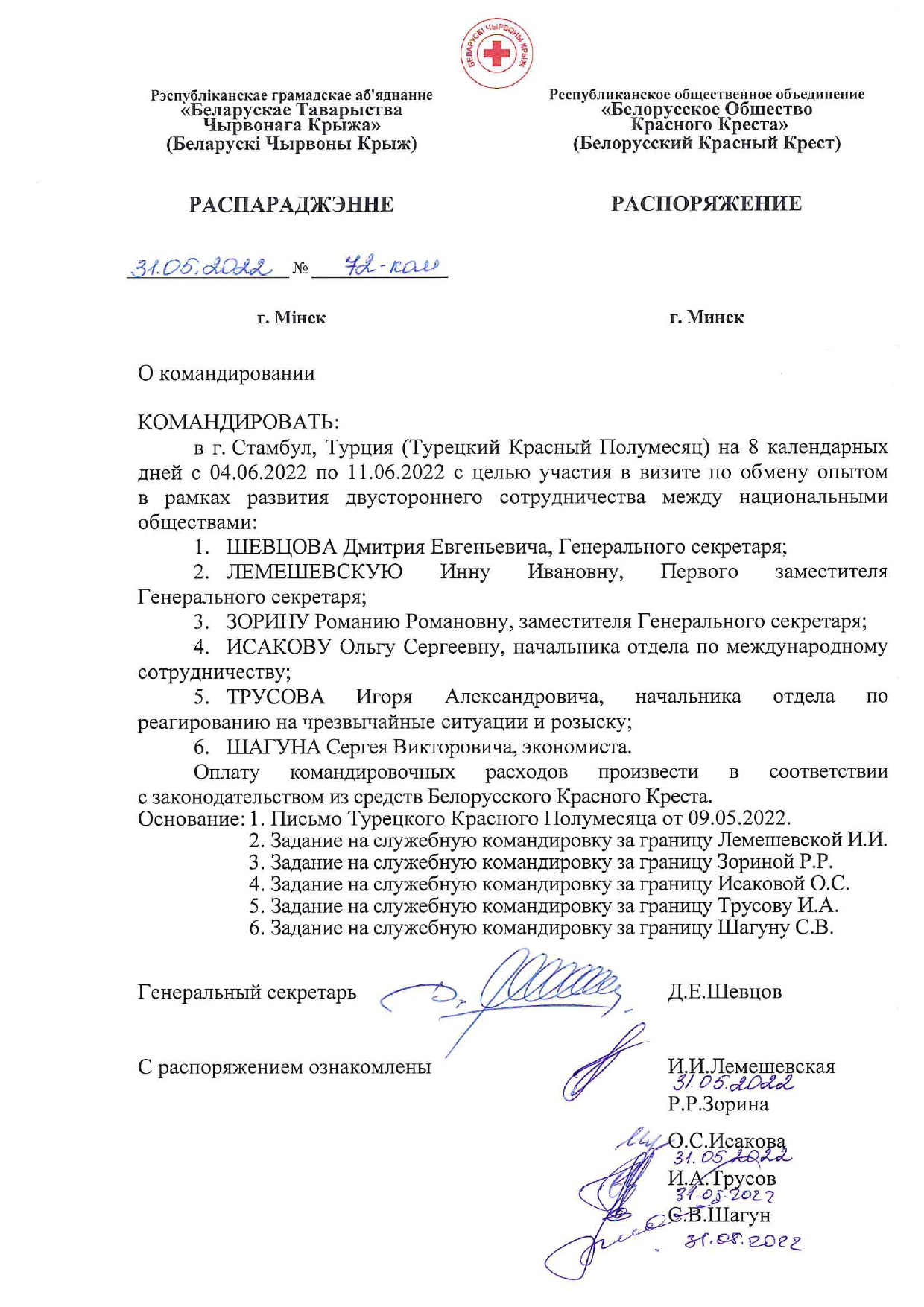
However, according to the tickets, the delegation did not return until the early hours of 13 June. It turned out that the BRC staff spent nine full days in Istanbul instead of the five originally planned.
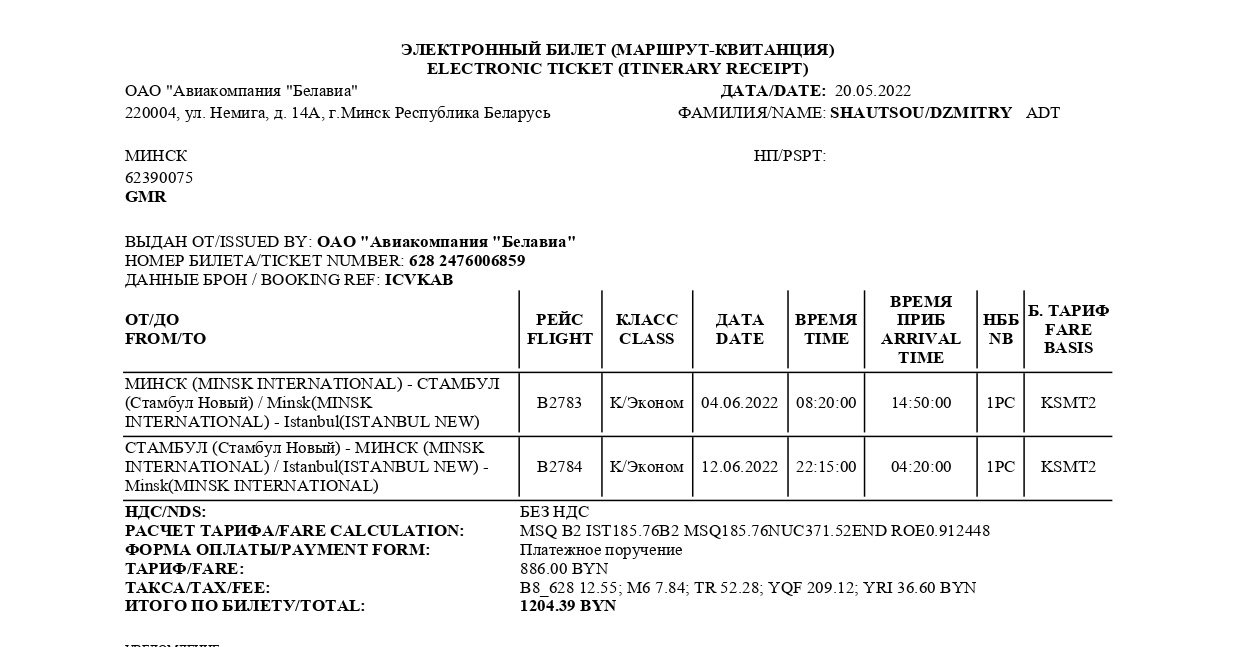
What were they doing there? The letters of assignment for all secretariat staff are identical, making it impossible to understand what each member of the Belarusian delegation was doing.
For example, the programme of the visit initially announced the presence of five people from the Belarusian Red Cross at the meeting with the consul. But in the photos taken to report this, we see only three people sitting at the table: Dzmitry Shautsou, Ina Lemiasheuskaya and Ala Smaliak. Volha Isakova and Ramania Zoryna are not there. Where the others were at the time, and what they were up to, is something of a mystery. Were they sitting in the waiting room?
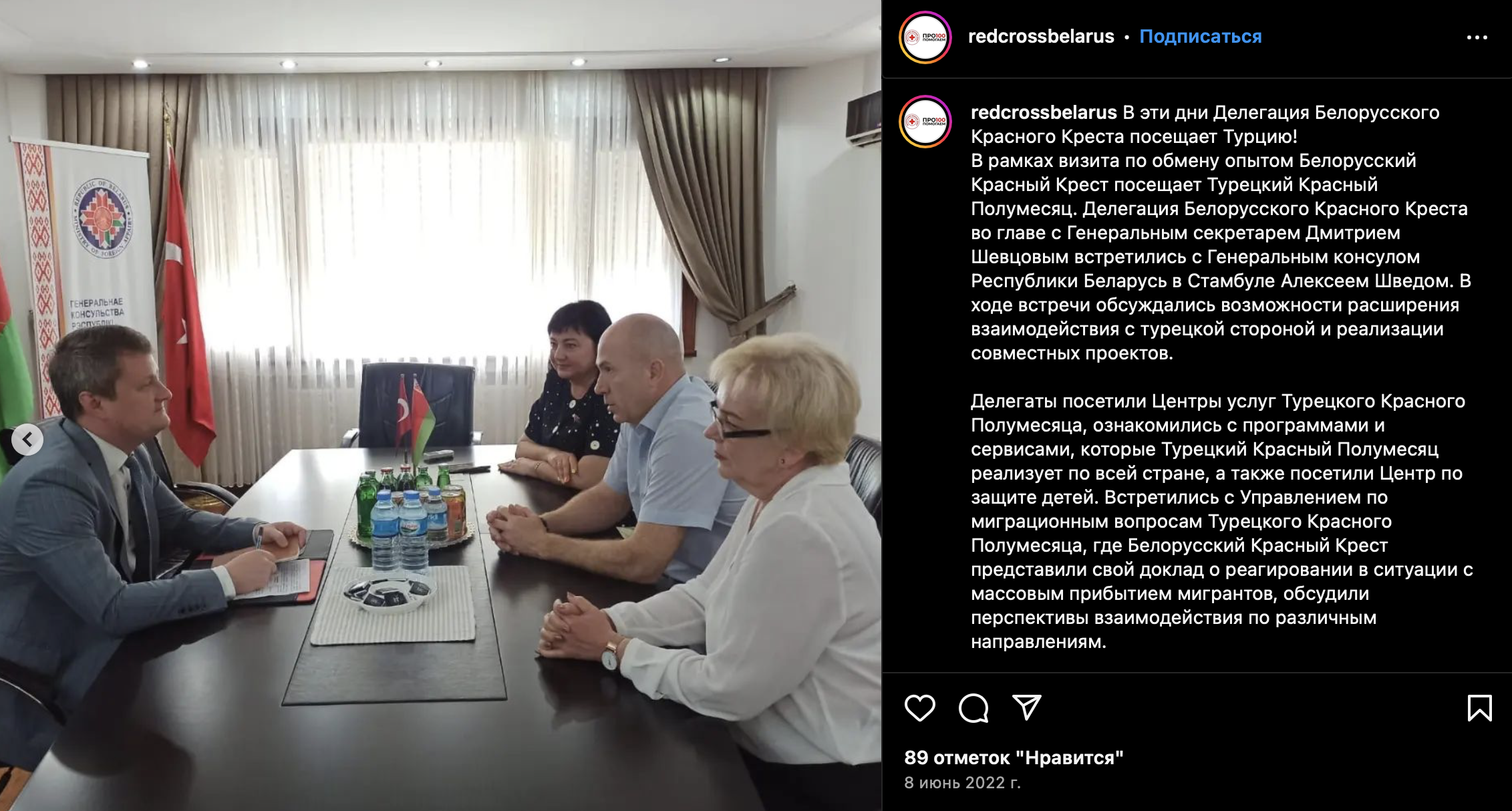
Screenshot of BRC’s Instagram page. On the right side from left to right: Ala Smaliak, Dzmitry Shautsou, Ina Lemiasheuskaya
The BRC website lists the "achievements" of the delegation in the publication on 8 June: visits, knowledge acquisition, and meetings. The text specifically mentions a meeting with the head of the Turkish Red Crescent and the joint signing of annexes to the memorandum of understanding. Almost the entire business trip programme was completed three days before its end.
The delegation discussed the trip results on the morning of June 11 in Istanbul. After that, the idle employees had the city at their disposal until the evening of June 12 when they departed. The group arrived in Belarus on June 13 at about 5 a.m.
How much did this trip cost the BRC tops? Regrettably, the leaked papers do not include any receipts or documentation for accommodation and meals, only for air tickets. But the approximate costs can be calculated. To do this, we turned to the Council of Ministers' resolution that guides the BRC when its members travel abroad. While in Turkey, a Belarusian employee is entitled to $40 per day for travel and $90 per day for accommodation. Weekends, departure and arrival days are paid as working days. According to our calculations, at least $11,000 was spent on accommodation and meals. This brings the cost to over $15,000, including airfare.
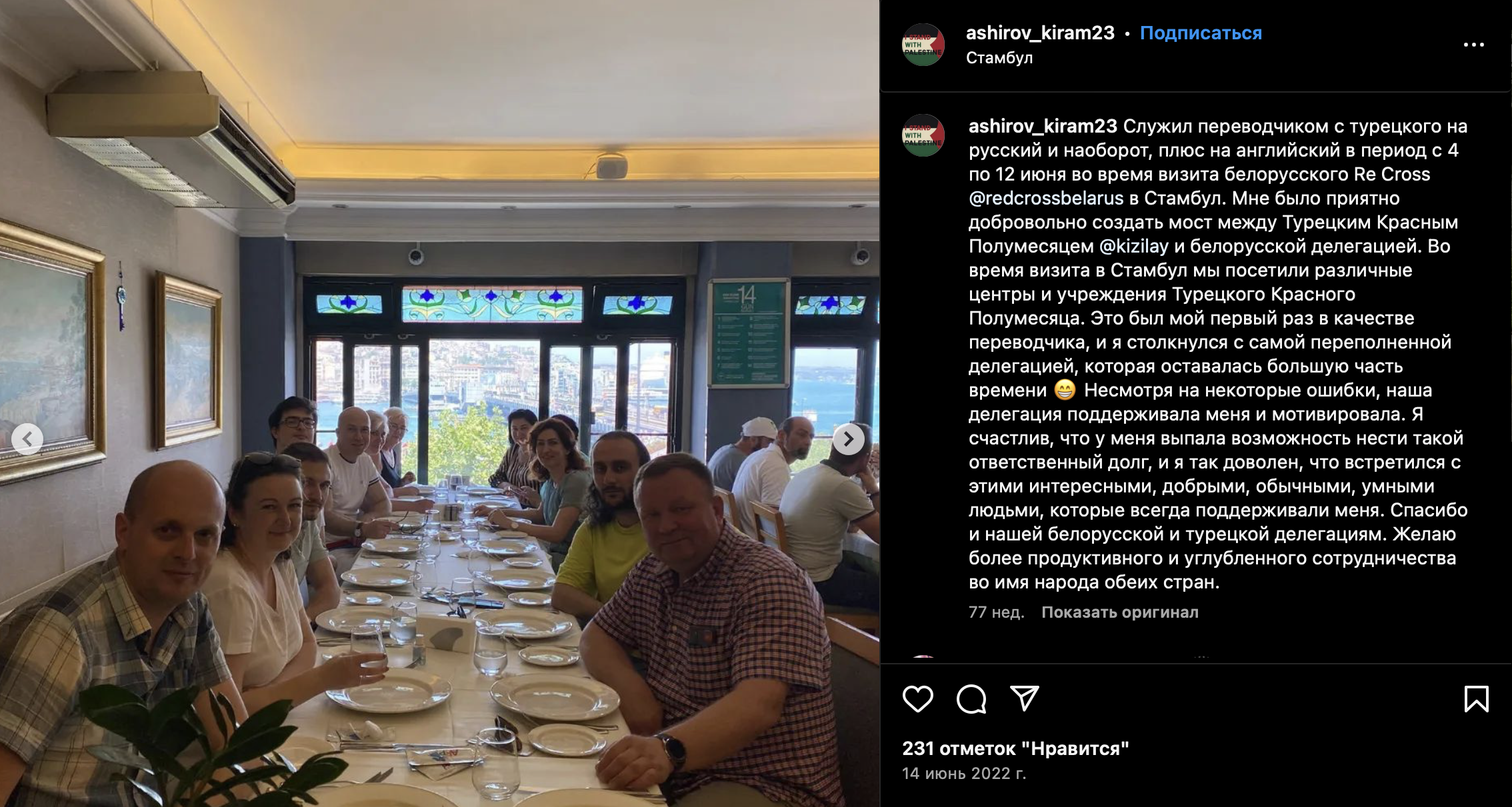
Screenshot from the Instagram page of the BRC delegation translator in Istanbul. BRC delegation having lunch in Istanbul
The documents show that Shautsou planned to pay for accommodation from a specific project run by the International Federation of Red Cross and Red Crescent Societies (IFRC). We requested information from this organization, and they confirmed providing minimal financial support to the BRC, without specifying the amount:
"The IFRC supported this opportunity for cooperation by covering the travel costs of a small part of the delegation (two people), which is common practice".
So, the luxury trip to Istanbul was funded by the IFRC (for two people) and by the BRC's own funds (for eight people). What are own funds? This money does not come from the social services commission or foreign donors. These are donations, sponsor support and membership fees. The funds mentioned constitute nearly 40% of the BRC's entire budget for 2022.
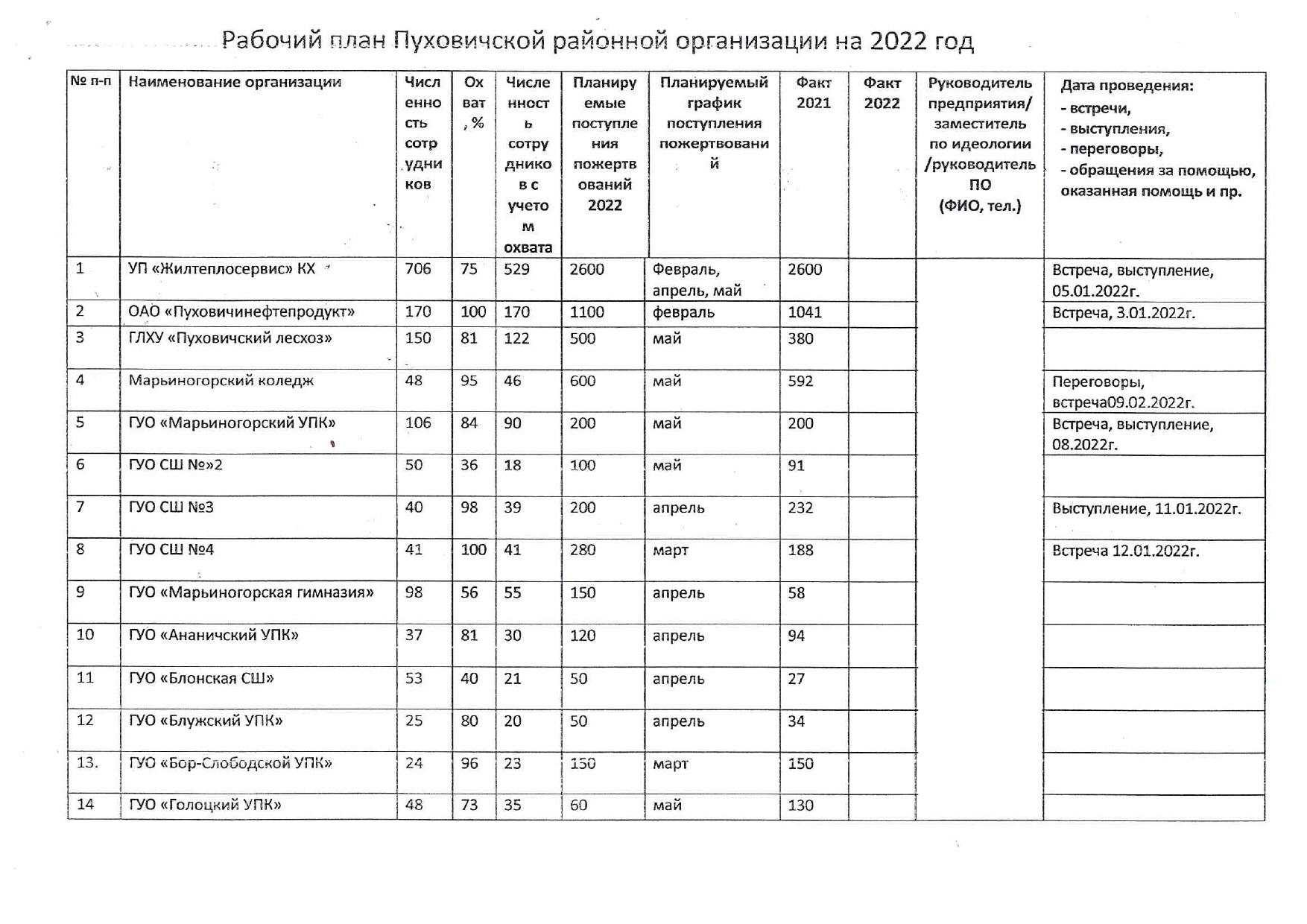
They are being collected from Belarusians on a volundatory basis in hospitals and schools.
"I joined the Red Cross bright-eyed and bushy-tailed. I wanted to help people. But after a few years, I left completely disappointed. I did not fulfil the donation collection plans and therefore we did not receive any money for the organisation's activities", says a former Red Cross worker.
Shautsou himself, as soon as he took office, issued an order roughly doubling the bonuses paid to the leadership for their efforts in extorting money from the people.
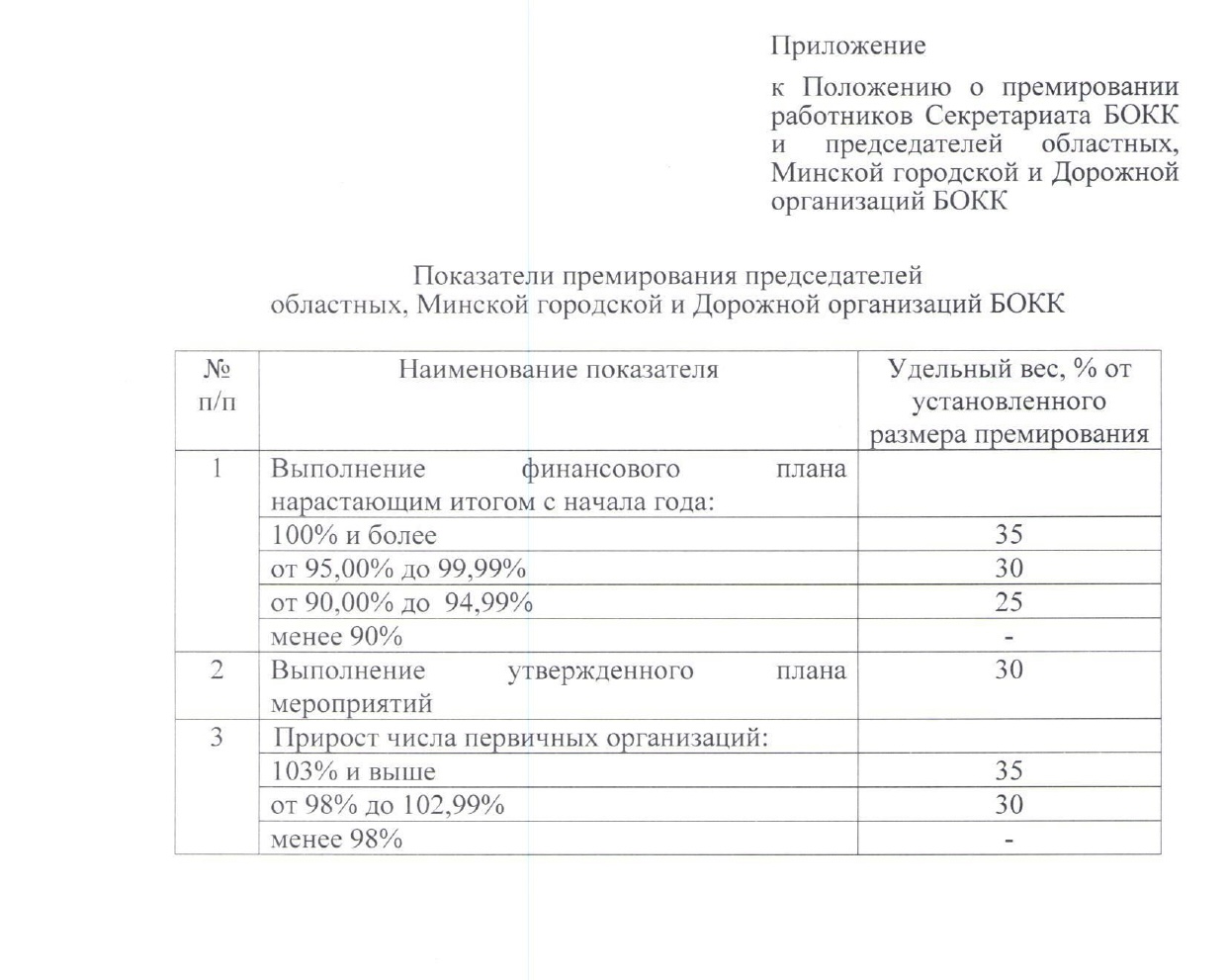
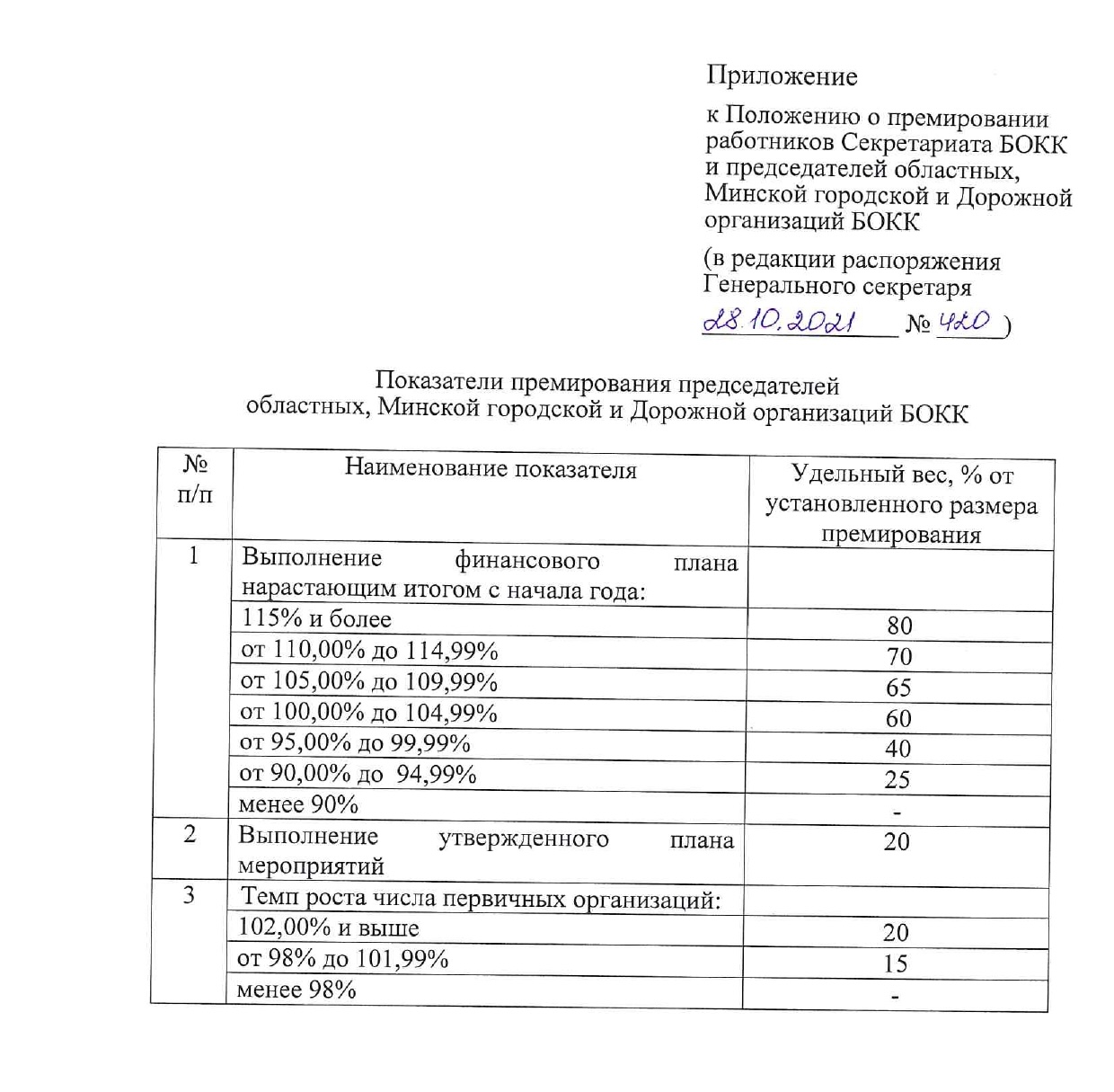
And if you look at the size of the quarterly bonuses, you believe that the regional offices that have adopted this approach have really become the best requisition performers.
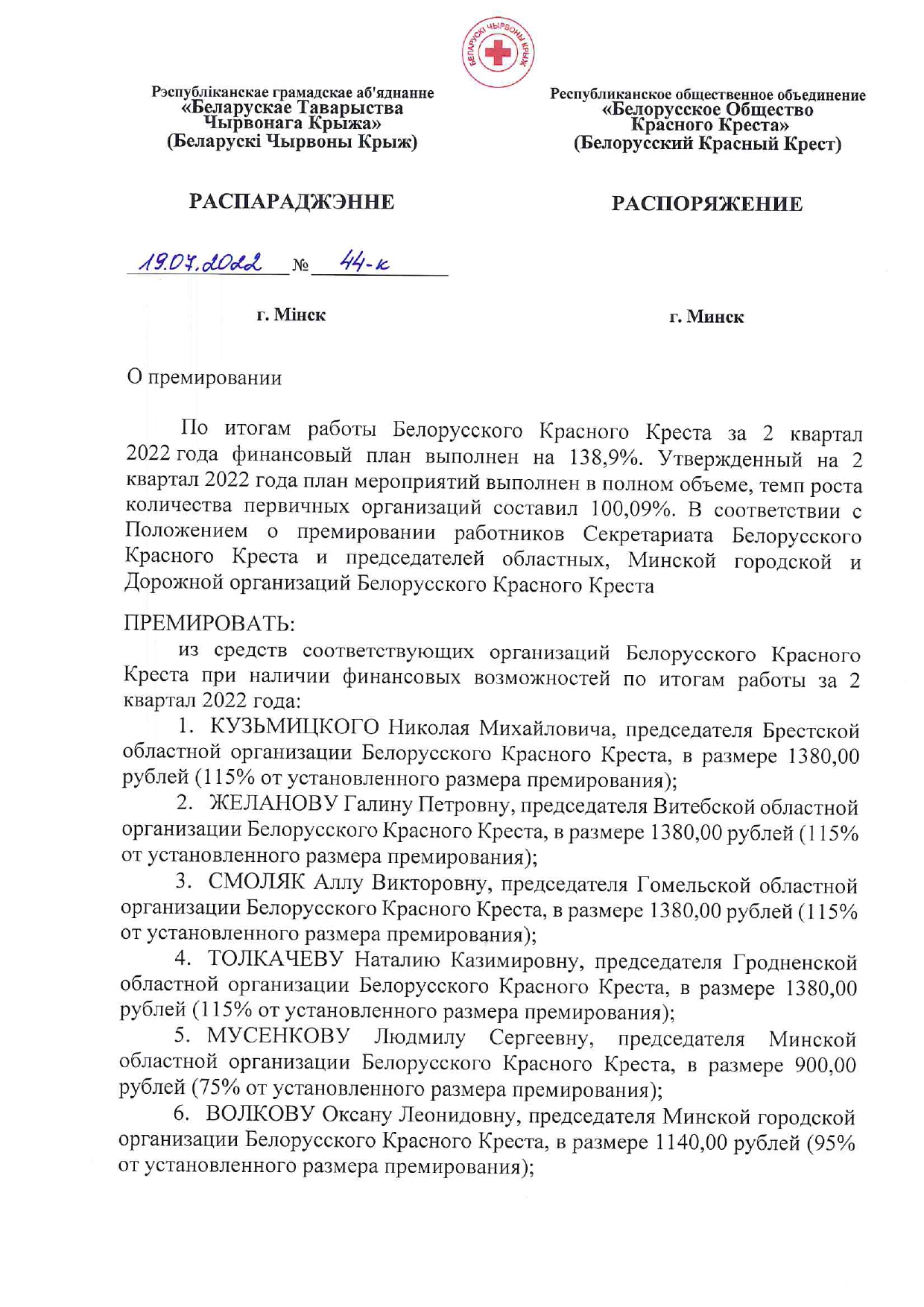
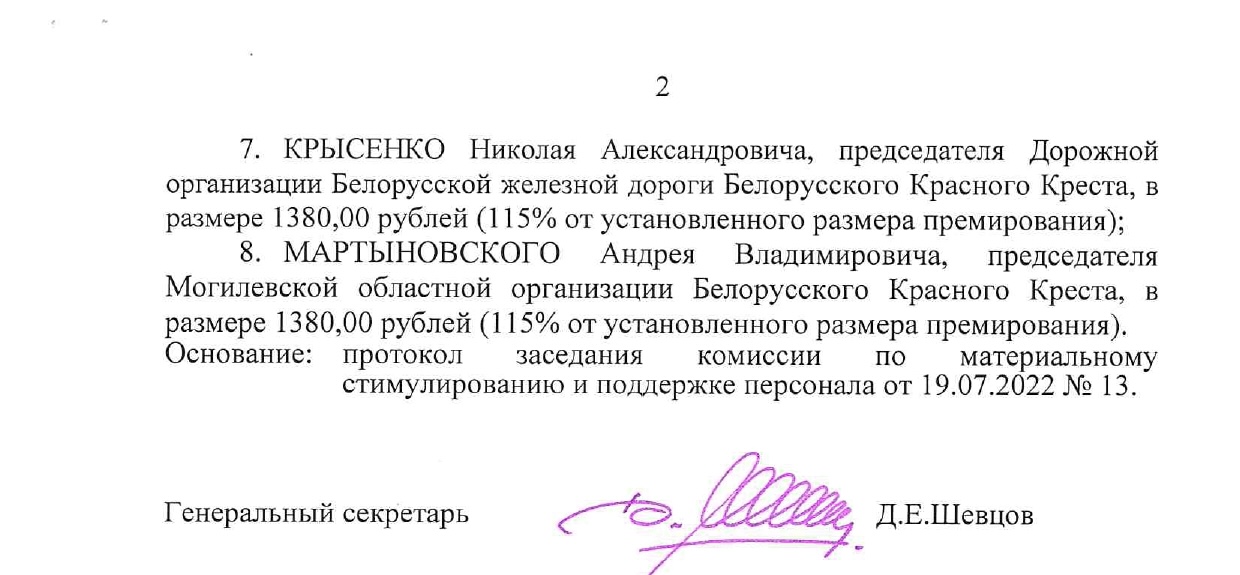
In 2021, residential care homes for the elderly and disabled, cultural centres and day nurseries were granted local BRC status on a massive scale. In other words, they began to collect money from those who would have needed this help themselves.
"The secretariat is busy squeezing money out of the regions. And assuming they have a work organisation from the dinosaur age, I still can't imagine what they do there. You have to create an apparatus that runs the other apparatus", says Andrei Stryzhak, head of the BySol Foundation with extensive experience in the civil society sector.
Another business trip that raised questions was also partly funded by sponsor support, donations from the public and membership fees.
ROMAN HOLIDAY
Nearly four months after his voyage to Turkey, Dzmitry Shautsou has set his sights on new horizons. He needs to fly to Rome at the invitation of the Italian Red Cross. Four more BRC workers accompany the Secretary-General.
This time we were more lucky. The expenses for this trip are documented. Tickets cost around 6,400 euros. Accommodation is close to 5,000 euros.
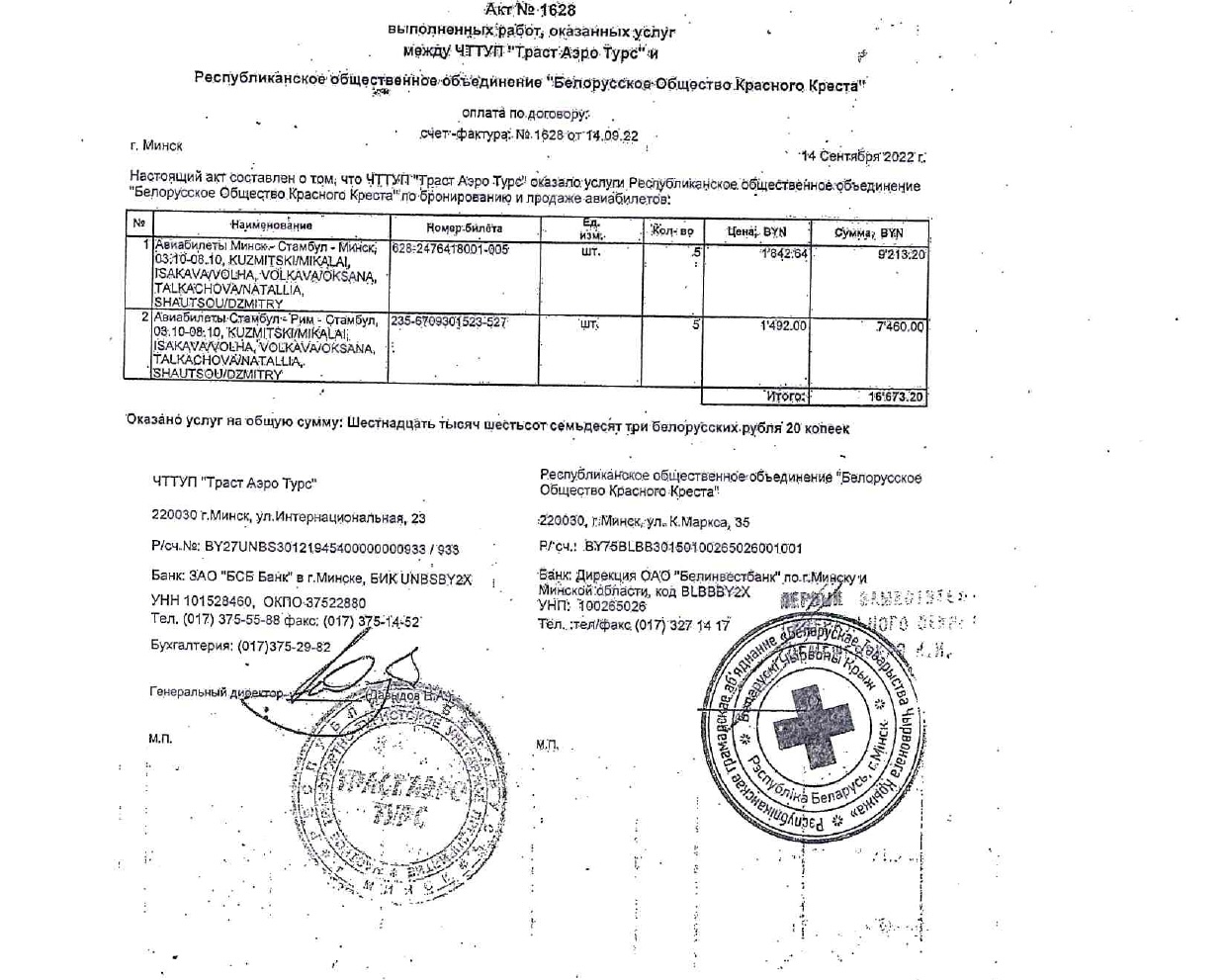
We will use the Council of Ministers table again to calculate travel expenses. For Italy, this is €85 per day or €2,550 for the whole group. Almost 14,000 euros in total. A great amount of cash for a Roman holiday.
But the devil is in the detail. As the hotel bills show, the BRC violated the Council of Ministers' resolution on acceptable accommodation costs. The official rate for one night is 135 euros. However, one member of the delegation is staying in a suite for six nights, which costs almost 1,200 euros in total, or 235 euros per night. This means that the cost of accommodation is more than one and a half times higher than normal. Who got that suite is open to guesswork. But other rooms are also more expensive than the established rate.
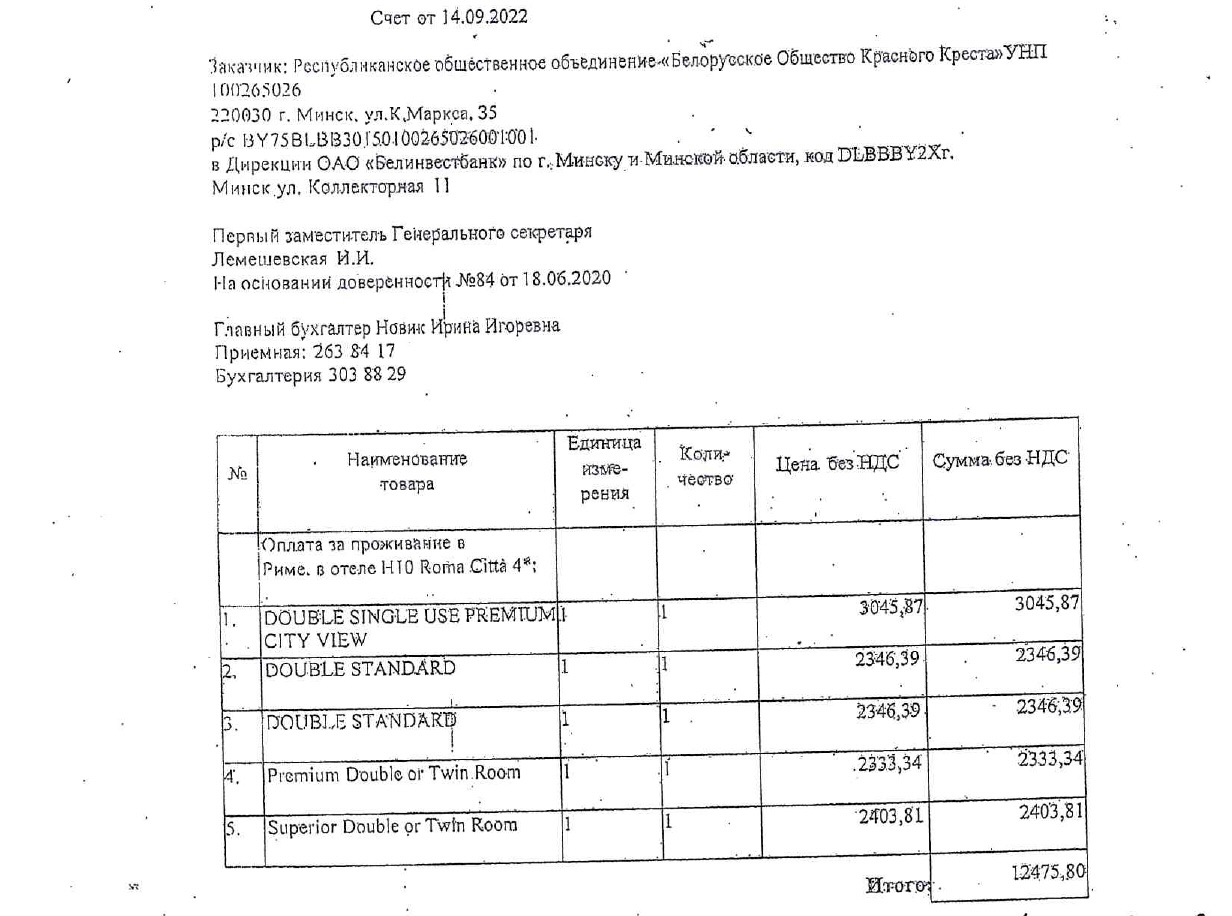
"If in the case of Turkey, we could write it off as Shautsou's poor management skills, here we see that it's a systematic approach. If it had happened once, it can be believed he might have missed something. I suppose he treats the BRC as his pocket. Shautsou books hotel rooms for $200 per night. A standard room can cost as much as $100 if you stay in Switzerland or Norway. But it was definitely possible to find something cheaper in Italy. When it comes to non-profit organisations, they should book standard or economy-class rooms. It seems that it's not so much about Shautsou's managerial skills as it is about his love of a fun life at the expense of others", comments Andrei Stryzhak.
This time, the International Federation of Red Cross and Red Crescent Societies has agreed to cover a maximum of €7,500 by reallocating funds from the projects it supports. It turns out that the BRC has taken almost the same amount of money from its own resources. After all, no expense should be spared for Rome.
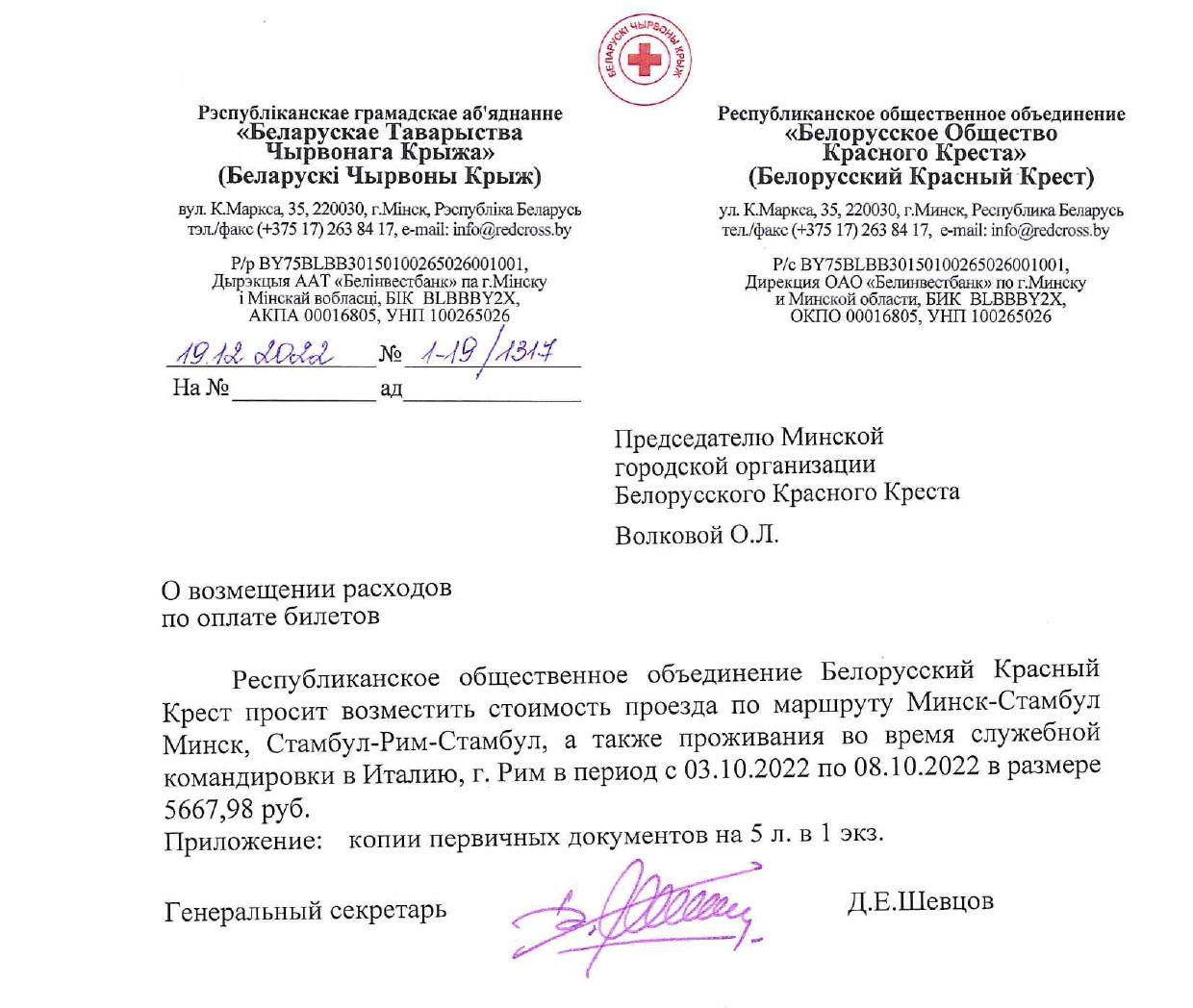
These two trips by senior BRC representatives clearly show that the organisation is not saving money on business travel. Instead of five days, they stay for nine and book premium rooms. All of this is thanks to volundatory contributions and funds allocated to specific projects by international organisations.
We were able to contact First Deputy Secretary General Ramania Zoryna and her supervisor Dzmitry Shautsou, but they declined to answer our questions. Subsequently, we submitted an official inquiry to the BRC, but we did not receive a response.
This prompted us to take a closer look at how and on what this public organisation spends the money given to it by international donors. And that, if you please, is almost 60% of the BRC's budget for 2022. The year before last, the BRC received almost BYN 13 million from international donors. Let's look at some of the grants. For which programmes does BRC receive international funding? How and for what is the budget allocated and what is the social impact?
3% FOR HELPING PEOPLE
BRC must register all international grants received with the Department for Humanitarian Affairs under Lukashenka's Property Management Directorate. To ensure that these grants are tax-exempt, relevant ministries must be enlisted for support.
One of the programmes that caught our attention was an IFRC grant of 37,800 Swiss francs (almost $42,000) as part of the "Belarus: Response to the COVID-19 outbreak" project. The money was to be used to help people with hearing and visual impairments, to buy food and hygiene kits and to run an awareness campaign. The BRC submitted an application to the Ministry of Labour and Social Protection for the approval of the grant. But the ministry rejected it! They were unhappy that only 3.3% of the budget, i.e. 1250 Swiss francs (about $1,390), were to be spent on helping particular individuals.
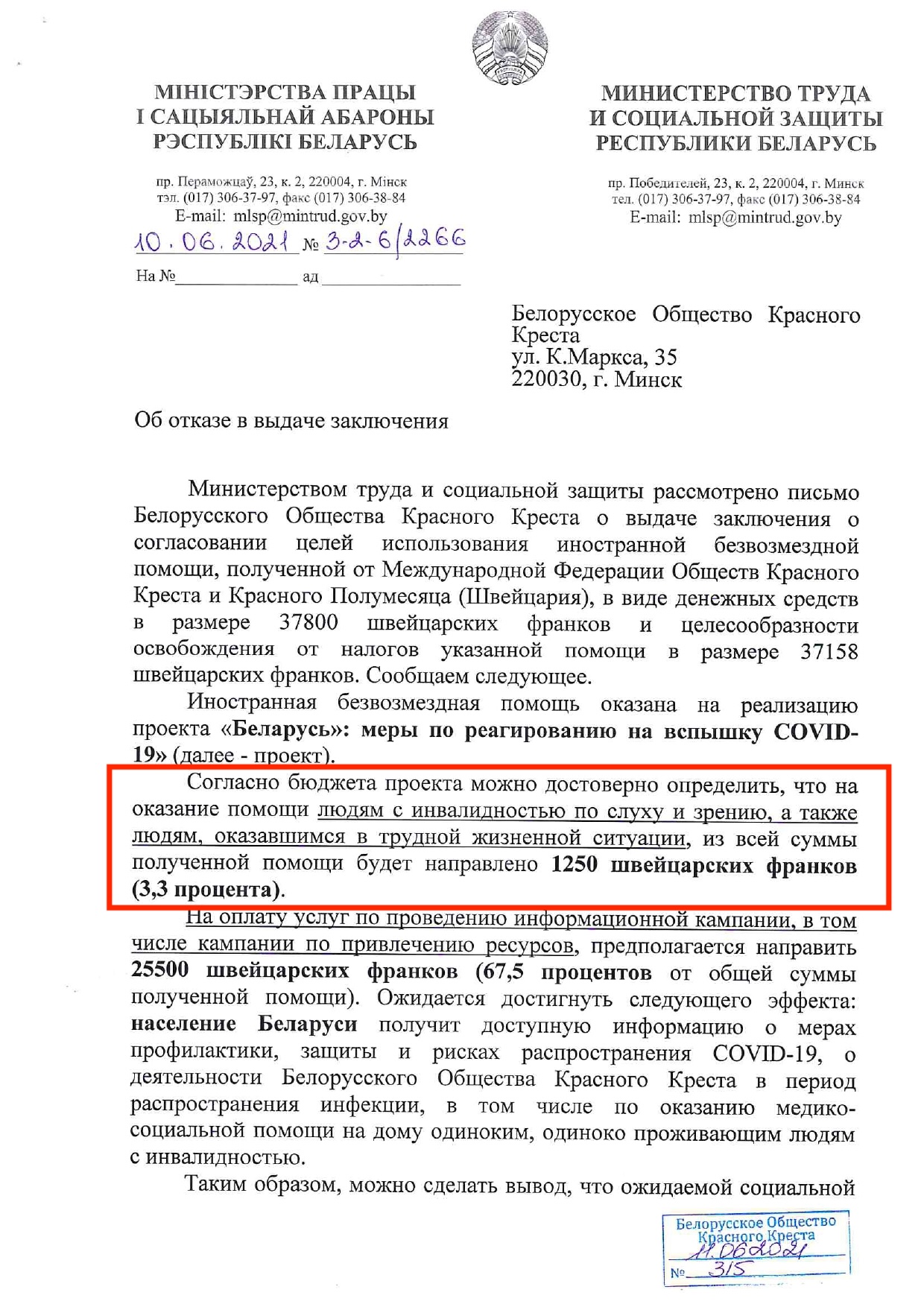
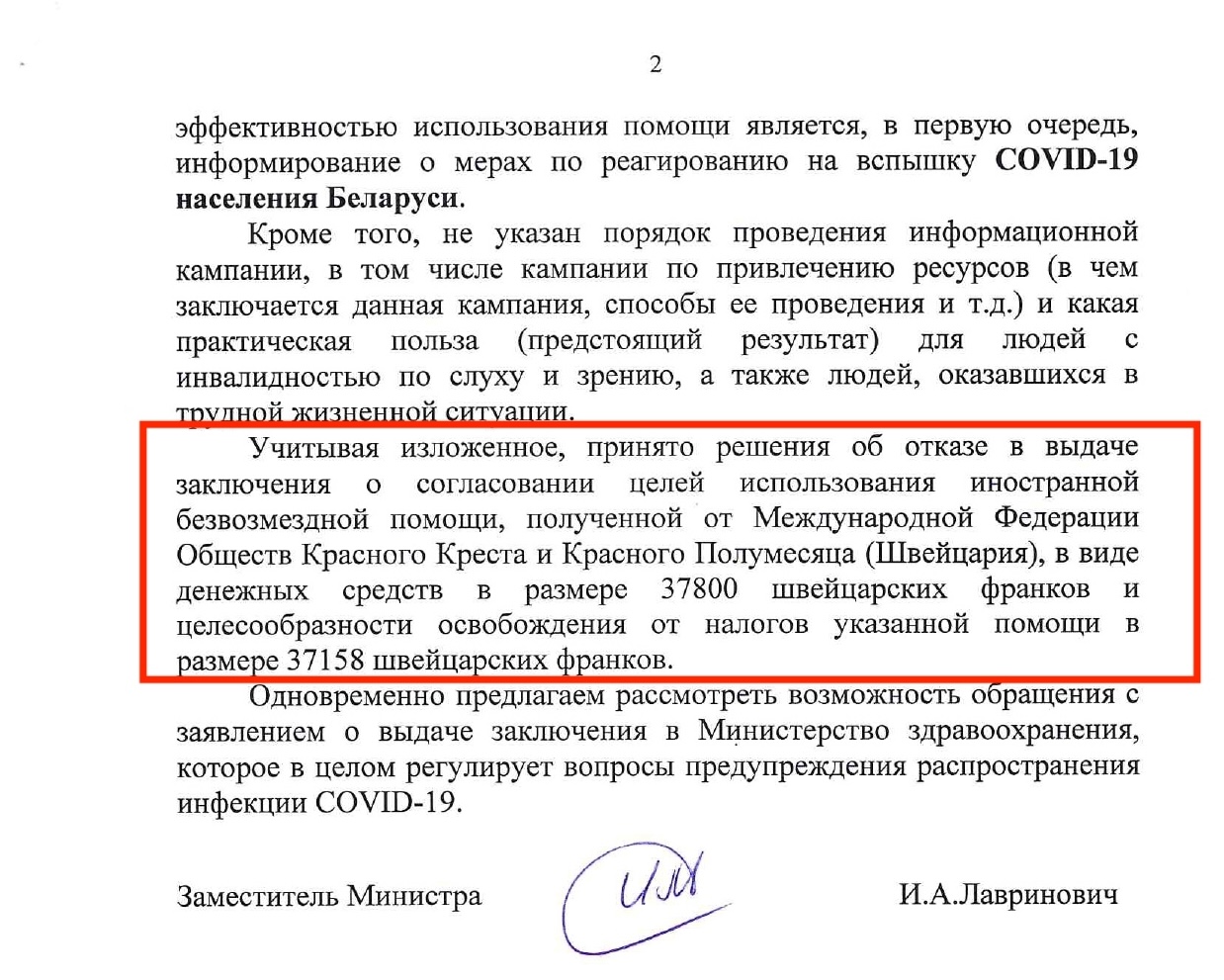
The BRC then turned to Dzmitry Pinevich's department, the Ministry of Health. Pinevich himself, incidentally, used to combine his ministerial duties with the position of acting chairman of the BRC.
The Ministry of Health had no questions about the application. The approval for the Department of Humanitarian Affairs was issued promptly. This was despite the fact that 67.5% of the BRC grant was to be spent on an awareness campaign. This also made the Ministry of Labour concerned.
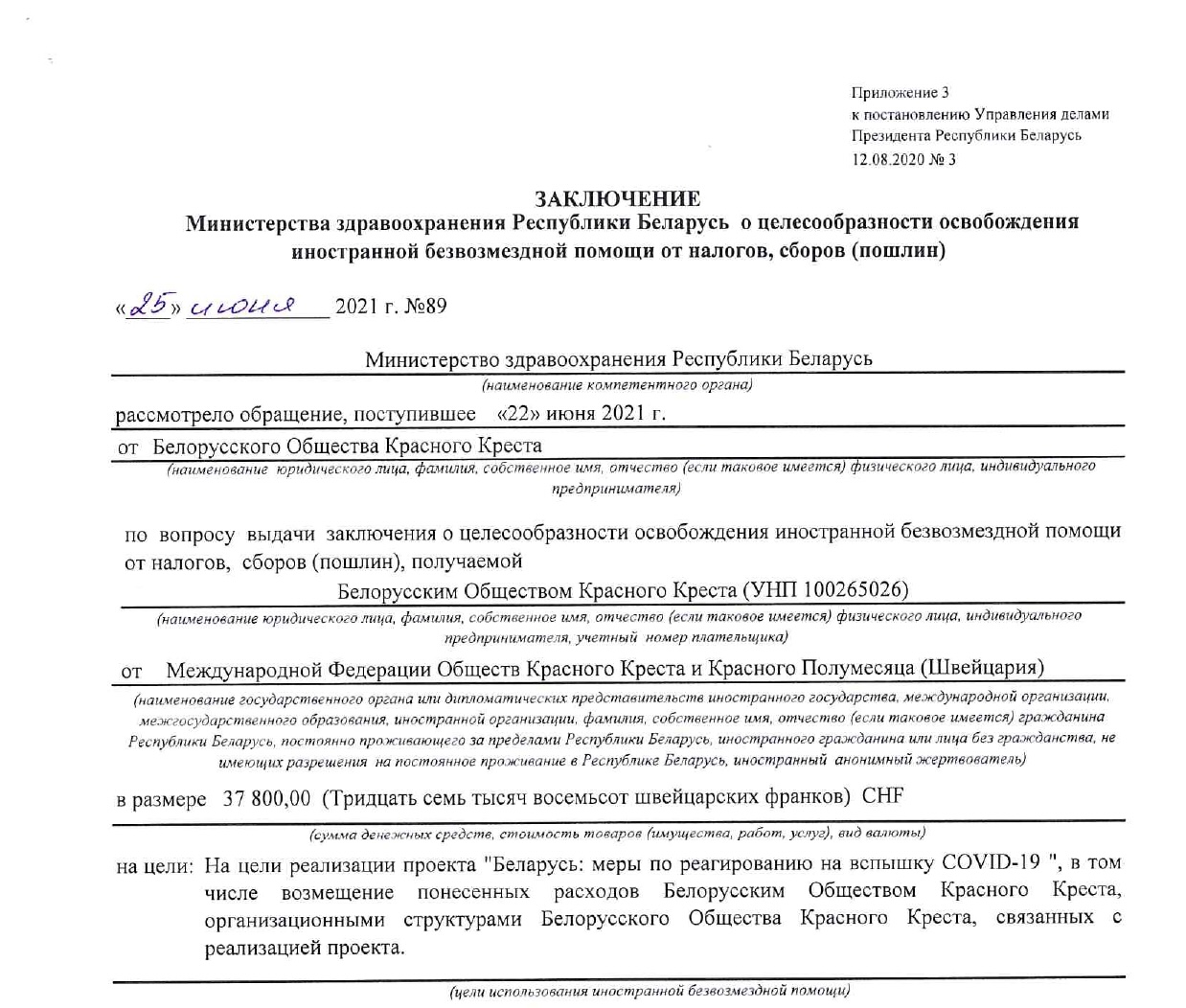
The IFRC responded to the Buro's request regarding this grant. They believe that "when disaster strikes, people need information no less than they need water, food, medicine or shelter". In emergencies such as pandemics, "information saves lives".
"I think this project was designed to get some funding and support the staff of the secretariat. This was a common practice. The side activity was printing [flyers] and demonstrating [actions]. It is easier to run an awareness campaign than to provide direct aid to vulnerable communities," says a former BRC worker.
TO EACH ACCORDING TO THEIR NEEDS
Below are some other documents related with the same COVID-19 project that we have found in the leak. They are notable for the handwritten notes indicating what part of the work, and for what money, the members of the BRC secretariat are willing to do within the project "Belarus: Response measures to the COVID-19 outbreak".
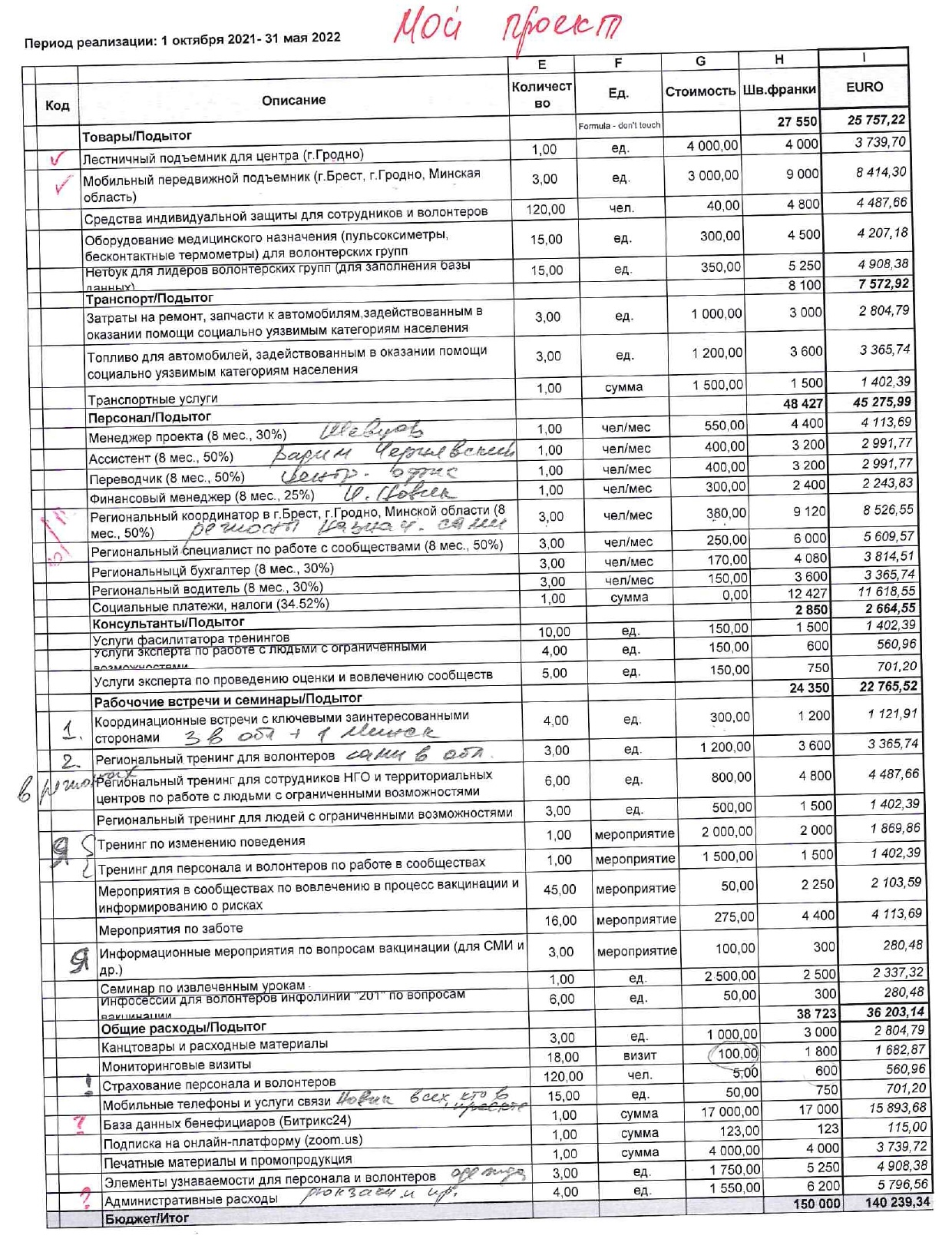
A larger amount of funding has been allocated to the project – 140,000 euros for the period from 1 October 2021 to 31 May 2022.
The objectives are simple: to improve access to COVID-19 vaccination for vulnerable populations living in remote areas of the Brest, Hrodna and Minsk regions. The BRC planned to help 2,000 people and inform 500,000 about getting vaccinated.
Let's take a look at what the money was actually spent on and, most importantly, how much of it was actually used for the purposes of the grant.
The expenses for one stairlift in Hrodna amounted to 3,739 euros, while three mobile column lifts cost 8,414 euros. Personal protective equipment, pulse oximeters, and thermometers worth 8,694 euros were purchased for BRC's employees and volunteers. An additional 3,739 euros were spent on printed materials and promotional products. The total expenditure was almost 21,000 euros.
Special mention should be made of training, seminars and coordination meetings. We will consider them as part of the public awareness program. A total of 22,765 euros have been allocated for them.
Of course, there are also expenses for cars that bring people to vaccination points. Their maintenance and fuel cost 6,000 euros. Another 1,400 euros have been allocated for some additional transport services.
So, let's count the whole thing. 39%, or 55,000 euros, was spent on vaccination information and support. The rest of the money was spent on staff salaries and improvements to the BRC's so-called "facilities and resources". Namely, the purchase of protective gear for volunteers, equipment and other things.
THE COORDINATING TEAM
Here is another BRC programme and grant that supports staff apart from local people in need. In early 2023, the BRC received $210,000 from UNICEF for the project "Identification, basic services and financial support and integration of families with children from Ukraine in the Republic of Belarus". Of this amount, $124,000 was in the form of money and the remainder was in the form of goods. The project plans to employ 21 project coordinators and 8 social workers from the BRC to manage the $124,000. With the addition of psychologists, financial managers, drivers, volunteers and information officers, there are 59 positions in the project.
A separate budget item clarifies that $58,250, or almost 50% of the funds allocated by UNICEF, is required to ensure effective management of the project.
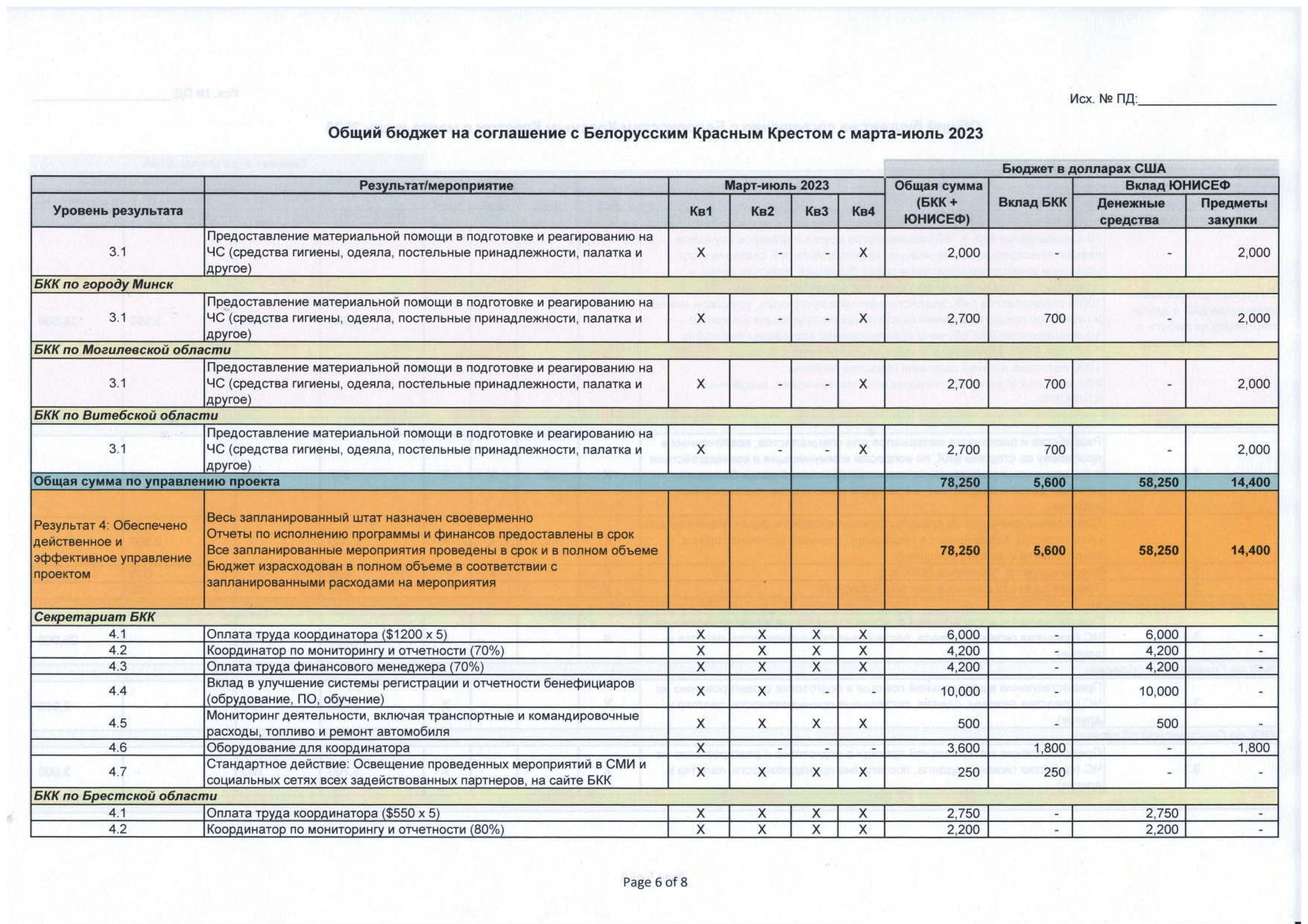
"To spend $58,000 on managing a project is disproportionate. The number of people in the project is at the very least an irrational and inefficient allocation of money, it doesn't match the scope of the project. The project is definitely overstaffed and it looks unnatural", Andrei Stryzhak commented on the distribution of the grant budget.
We have also calculated how much of this $124,000 will be used to pay the staff and got a number of some $80,000, or 65% of the money given.
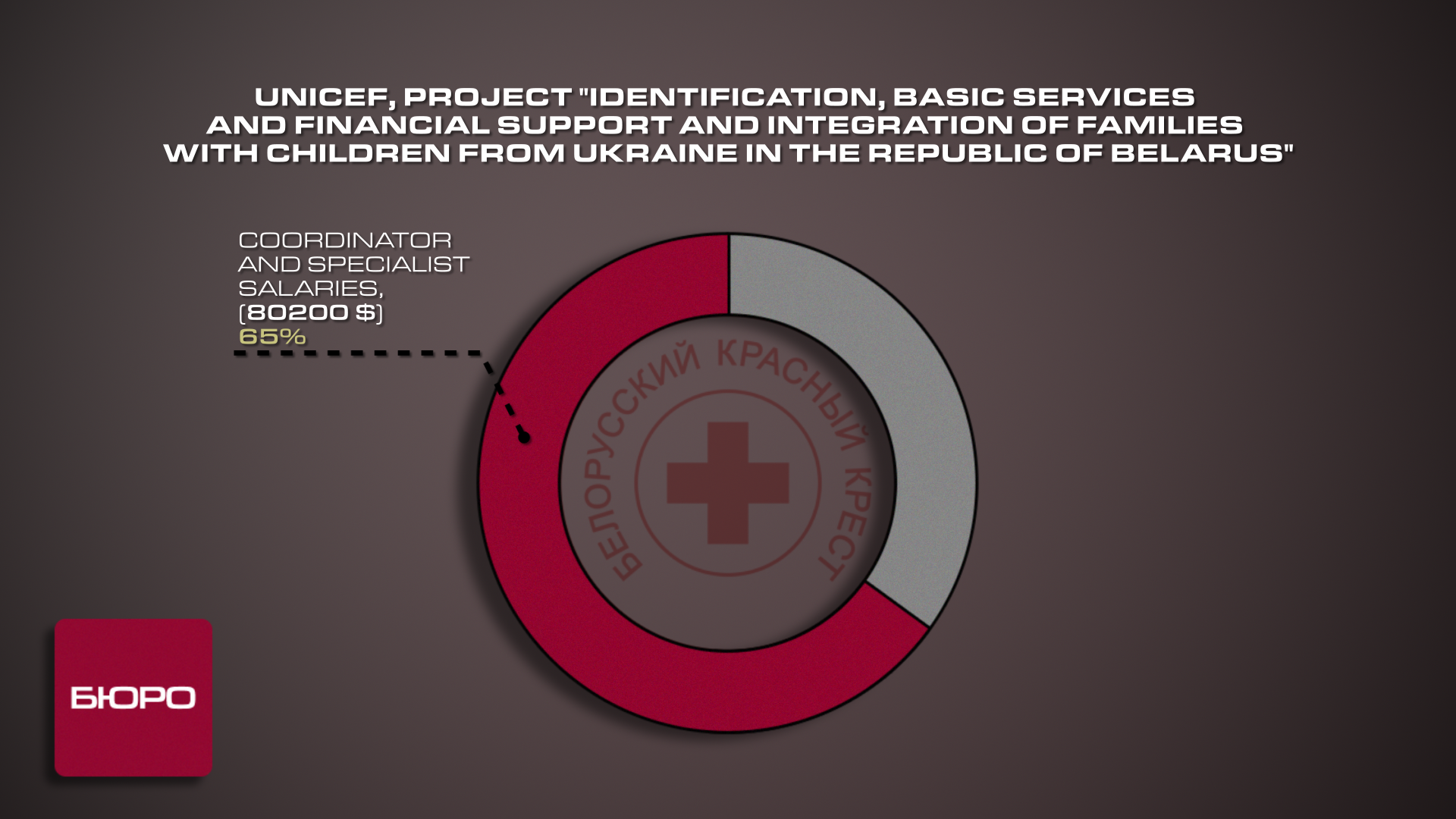
UNCOVERING BRC'S SECRETS
Two of the three grants mentioned above were requested under the guidance and approval of Dzmitry Shautsou. It is anyone's guess why the Belarusian authorities and international donors are turning a blind eye to such profligate spending of a charitable organisation. But it can be assumed why the Belarusian authorities benefit from this.
"The Belarusian Red Cross is a place where former officials and well-connected family members can retire safely on a European salary", according to a former BRC worker.
Today, we will focus on Dzmitry Shautsou, while a separate article will cover the faces of the Belarusian Red Cross in detail.
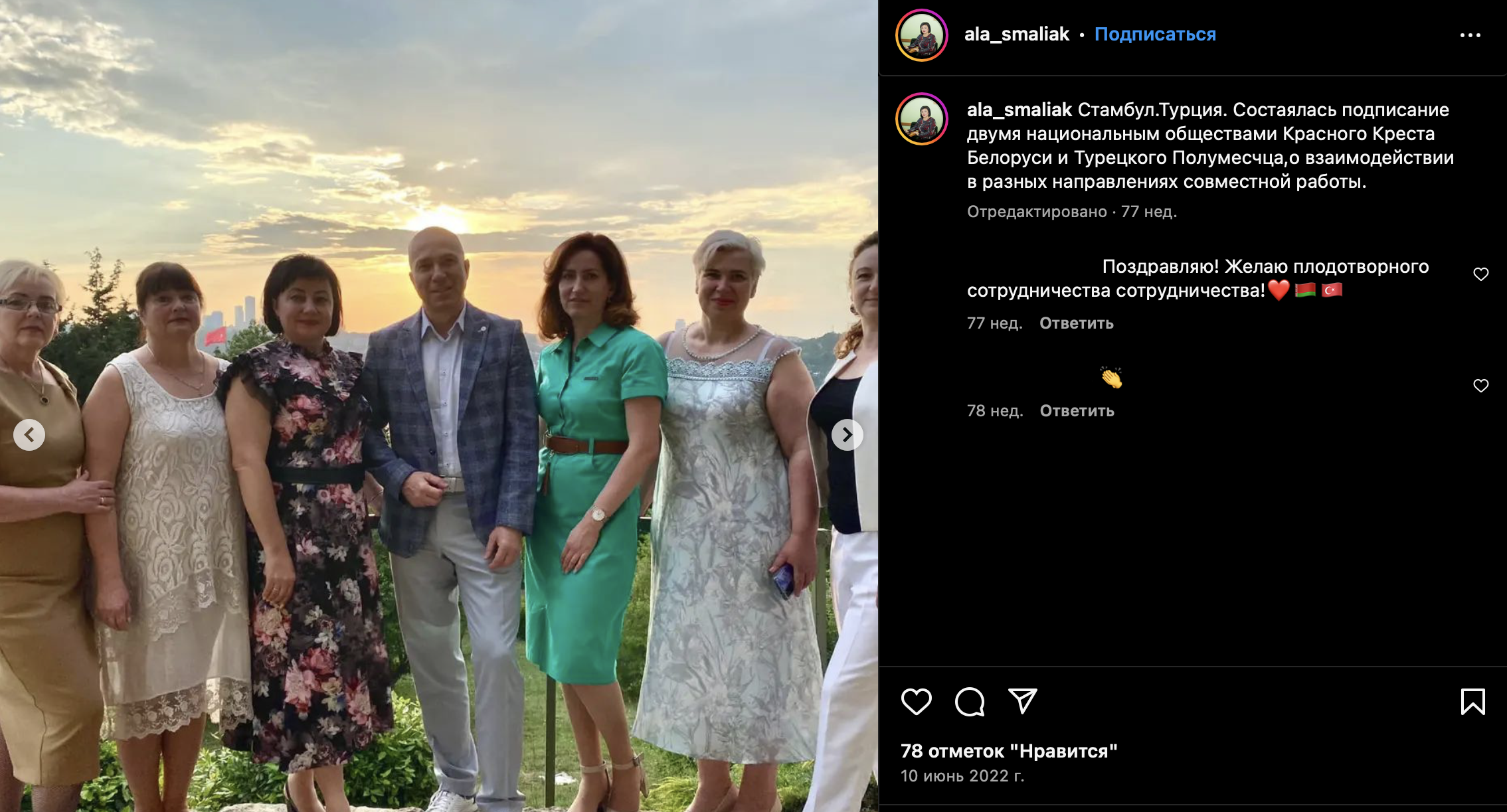
Screenshot from the Instagram page of BRC staff member Ala Smaliak. BRC delegation in Istanbul. From left to right: Ina Lemiasheuskaya, Halina Zhalanava, Ala Smaliak, Dzmitry Shautshou, Natallia Taukachova, Ramania Zoryna, Volha Isakova
He used to be a doctor and a deputy and took an active part in the elections. He was appointed to chair the Minsk City Election Commission for the 2015 presidential elections. He held this position during the 2017 elections for the Minsk City Council, the 2019 elections for the House of Representatives, and the infamous 2020 presidential elections.
In 2020, Shautsou attended the secret inauguration of Aliaksandr Lukashenka. In a comment for the Lukashenka Presidential Office newspaper, he shared his impressions of the inauguration ceremony: "It was intense and emotional. The President stressed that we opposed any attempt to seize power and alter the constitutional order".
GROWING WITH BRC
How did Shautsou end up in the BRC? In January 2020, he was appointed chief physician of the 1st City Clinical Hospital after serving as a deputy. But he did not stay there for long. In September 2021, Shautshou was nominated for the post of Secretary-General at the congress of the Belarusian Red Cross. The nomination was supported by Dzmitry Charednichenka, the Chairman of the Congress Presidium and Deputy Minister of Health. Shautsou replaced Volha Mychko, who had held this position for five years.
It just so happened that Shautsou's appointment coincided with the escalating migration crisis on the Belarusian-Polish border. Under Shautsou's leadership, the BRC provided food, clothes, blankets, and pillows to migrants stranded at the border. They also transported medicine and took people to hospitals.
Of course, it was not done exclusively at the expense of the Belarusian Red Cross. International organizations traditionally allocated funds for assistance, and the population was asked to donate more for this purpose. Back then, the BRC reported on their activities to the Council of Ministers almost every day.
And, of course, a new car was involved. After all, important bosses should drive official cars. In the autumn of 2022, the BRC started using a new Geely Tugella by the Belarusian-Chinese car manufacturer. The vehicle's price starts at BYN 110,000.

Geely Tugella. Source: av.by
We have not found detailed information about how the BRC acquired it. However, according to the public procurement website, the Red Cross announced a tender for the purchase of a new vehicle in August 2022. The BRC ran the tender the old-fashioned way, opening the envelopes in person and not using digital platforms. So the results of the tender are unknown.
But, coincidentally, the Geely Tugella arrived in October. Exactly when it was supposed to be delivered to the BRC under the tender. First, the brand new Geely was assigned to the organisation's supply administrator, but a few days later Shautsou set off on his first business trip in it. In December 2022, he secured it for himself by his own order.
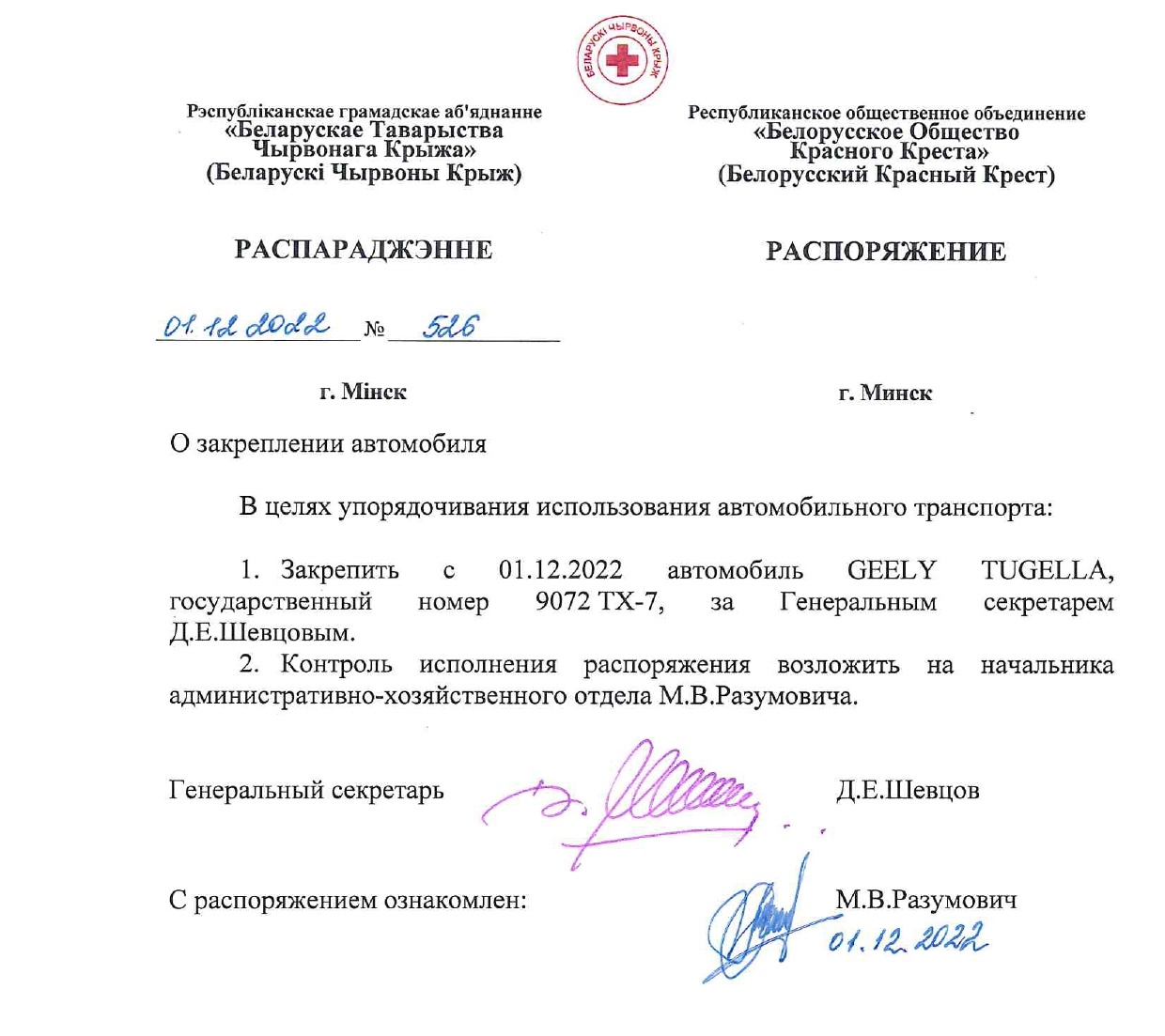
THE RUSSIAN WORLD
Shautsou is no stranger to the ideals of the “Russian world”. In July 2014, he became the head of the Belarusian branch of the Unity of Orthodox Nations Foundation (UONF). He holds this position to this day.
He replaced Uladzimir Kanaplou, a close associate of Aliaksandr Lukashenka since his days as a deputy in the Supreme Council.
Little is known about the activities of this foundation in Belarus. The scant reports on the Russian foundation's website mention assistance in the construction of several Orthodox churches in Belarus, involvement in the drafting of laws, and educational activities. The fund's financial reports are not published on the Ministry of Justice's website, and we have not been able to locate the organisation's website. The telephone number in the legal documents belongs to one of the House of Representatives offices.
The media used to refer to the Russian foundation as the "Gazprom Church Foundation". Vladimir Potanin (President of Norilsk Nickel, former First Deputy Prime Minister of the Russian Federation) and Pavel Borodin (former Chief Administrator to Vladimir Putin) are among the founders. As for the foundation itself, it is in fact one of the instruments of soft power. It uses Orthodoxy to promote the ideas of the "Russian world".
But this is not the only evidence of Shautsou's commitment to these ideas. It is worth remembering his scandalous trip to the occupied territories of Ukraine, wearing a Z patch on his sweater. Shautsou makes no secret of the fact that his sympathies lie with the Russian and Belarusian authorities.
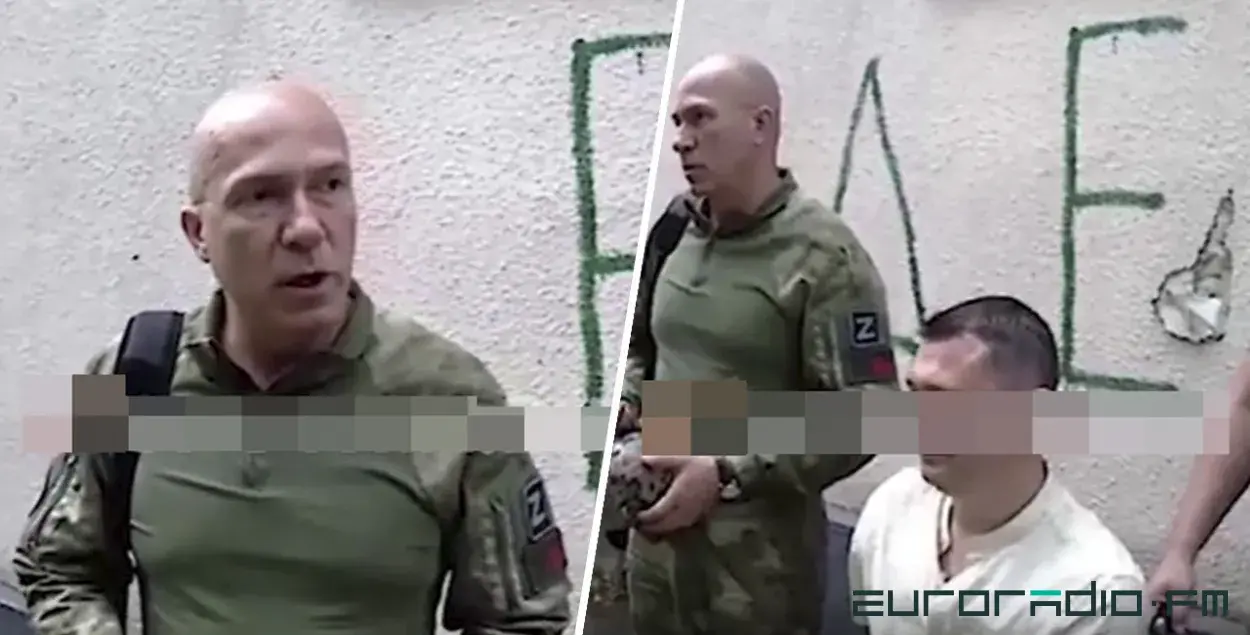
Dzmitry Shautshou on his way to Donbas. Source: euroradio.fm
Due to the scandalous trip of the BRC Secretary-General to the occupied Ukrainian territories, the membership of the Belarusian Red Cross in the international organisation was suspended. New funding for the BRC has been on hold since 1st December. This can cause major problems for the largest Belarusian public association, which relies mainly on money from foreign donors. According to the 2022 report, International Red Cross and Red Crescent Movement participants provided 58% of all international aid to the BRC. Money from UN agencies accounted for another 41%.
The Belarusian UN Mission told us that they are now looking to complete the current projects with the BRC and eventually replace it as a partner. They may choose to work through other NGOs or directly with the hospitals.
"The United Nations office in Belarus has acknowledged the suspension of the Belarusian Red Cross's membership in the International Federation of Red Cross and Red Crescent Societies (IFRC). The UN agencies in Belarus are focused on completing existing projects with the Belarusian Red Cross. We are exploring alternative methods to continue providing necessary support to vulnerable communities in Belarus. This is to ensure the continuity of humanitarian assistance during this transition period", an officer at the Belarus UN Mission stated.
How will the BRC plug this budget hole? According to our source, BRC is planning to cut 30% of its workforce. It's like the old joke, "Dad, will you drink less now?" "No, son, you're going to eat less now".
Добавления по теме
Thus, the organisation breaches the principles of the International Red Cross and Red Crescent Movement
Her trip was not work-related, unlike Shautsou's
As a result, the organisation could lose around 40% of its foreign funding

